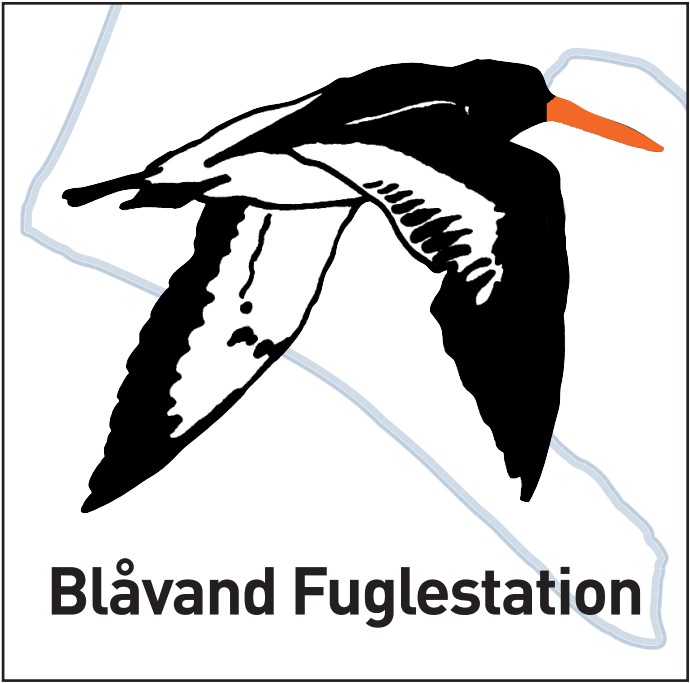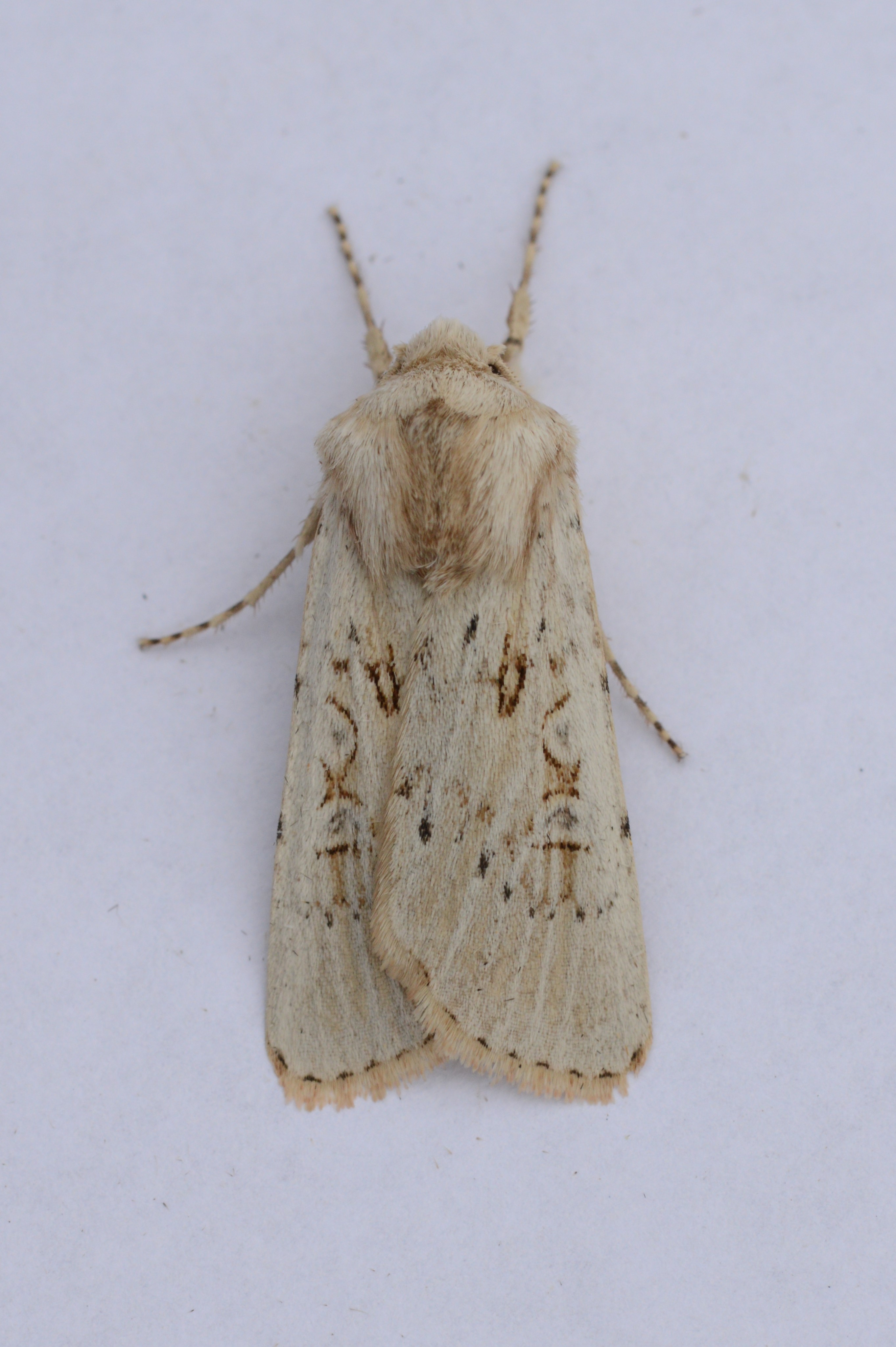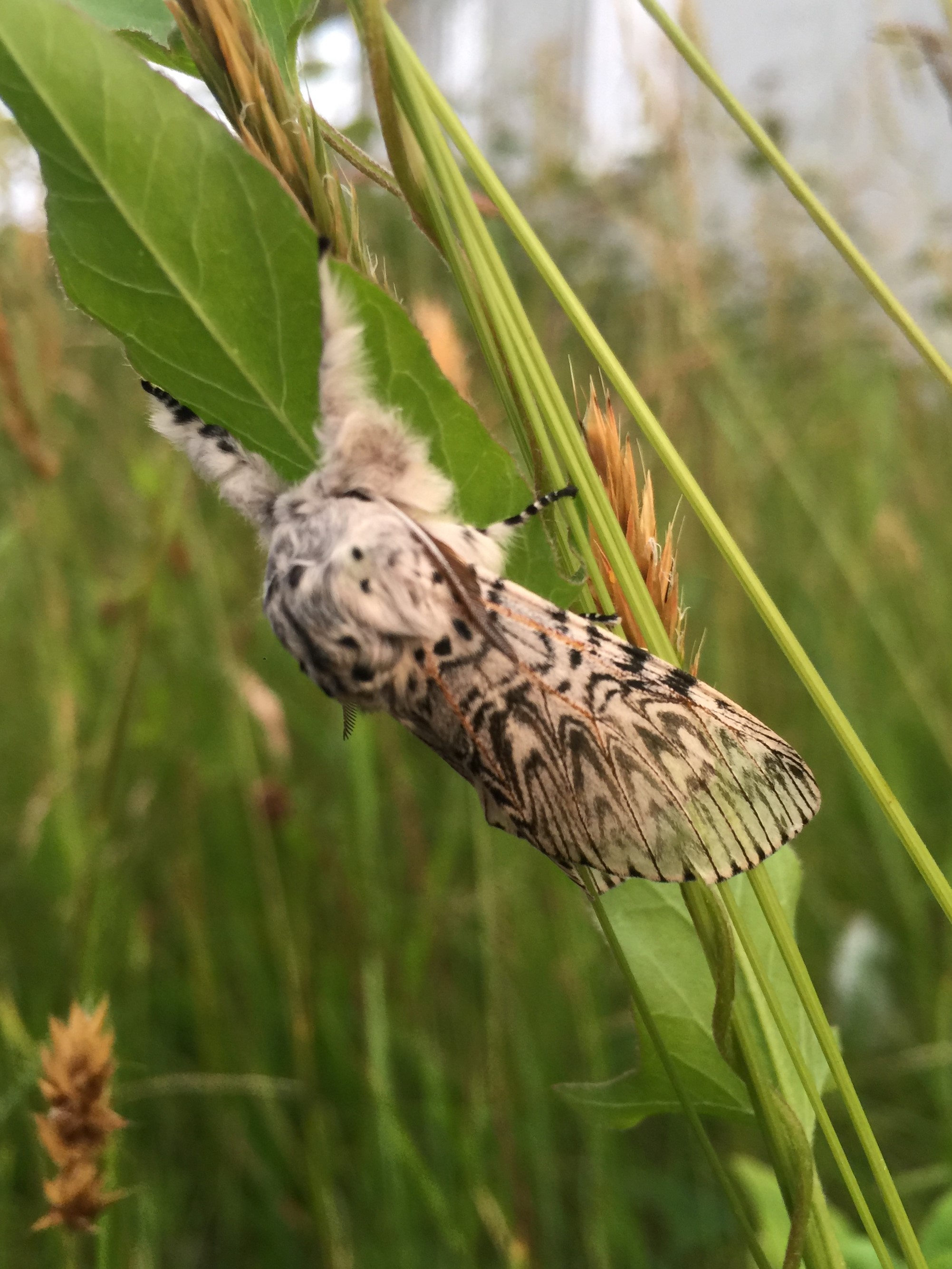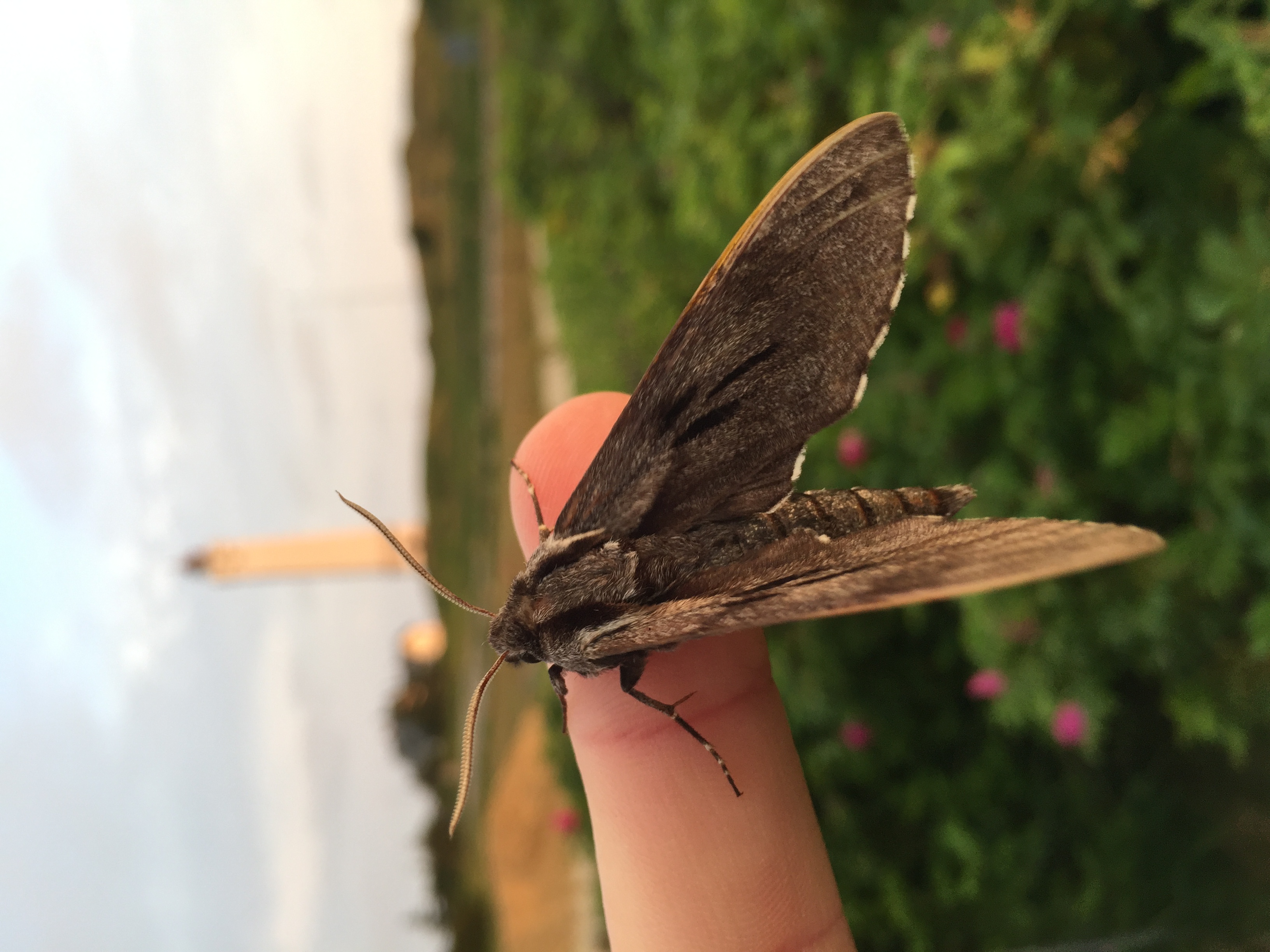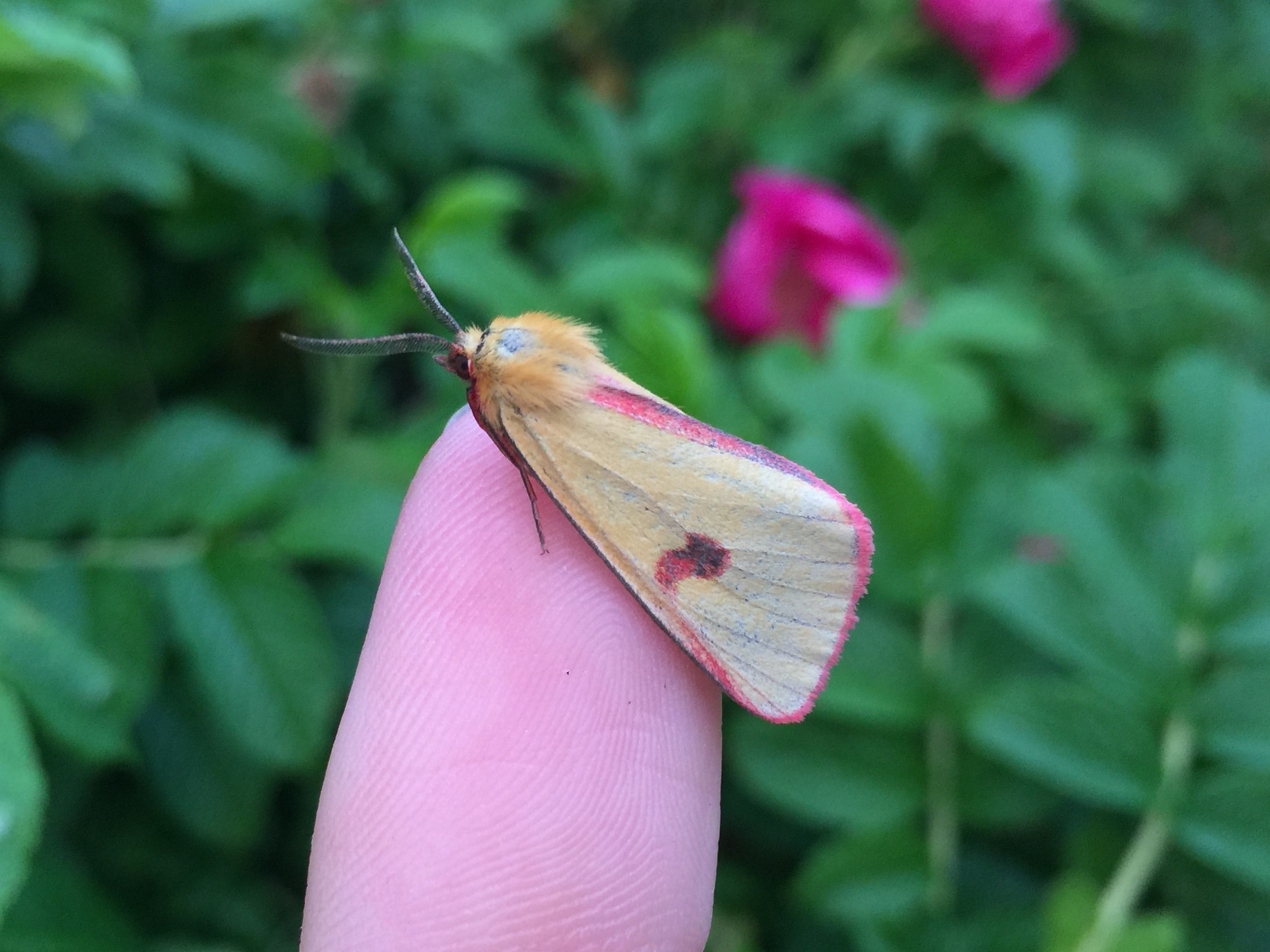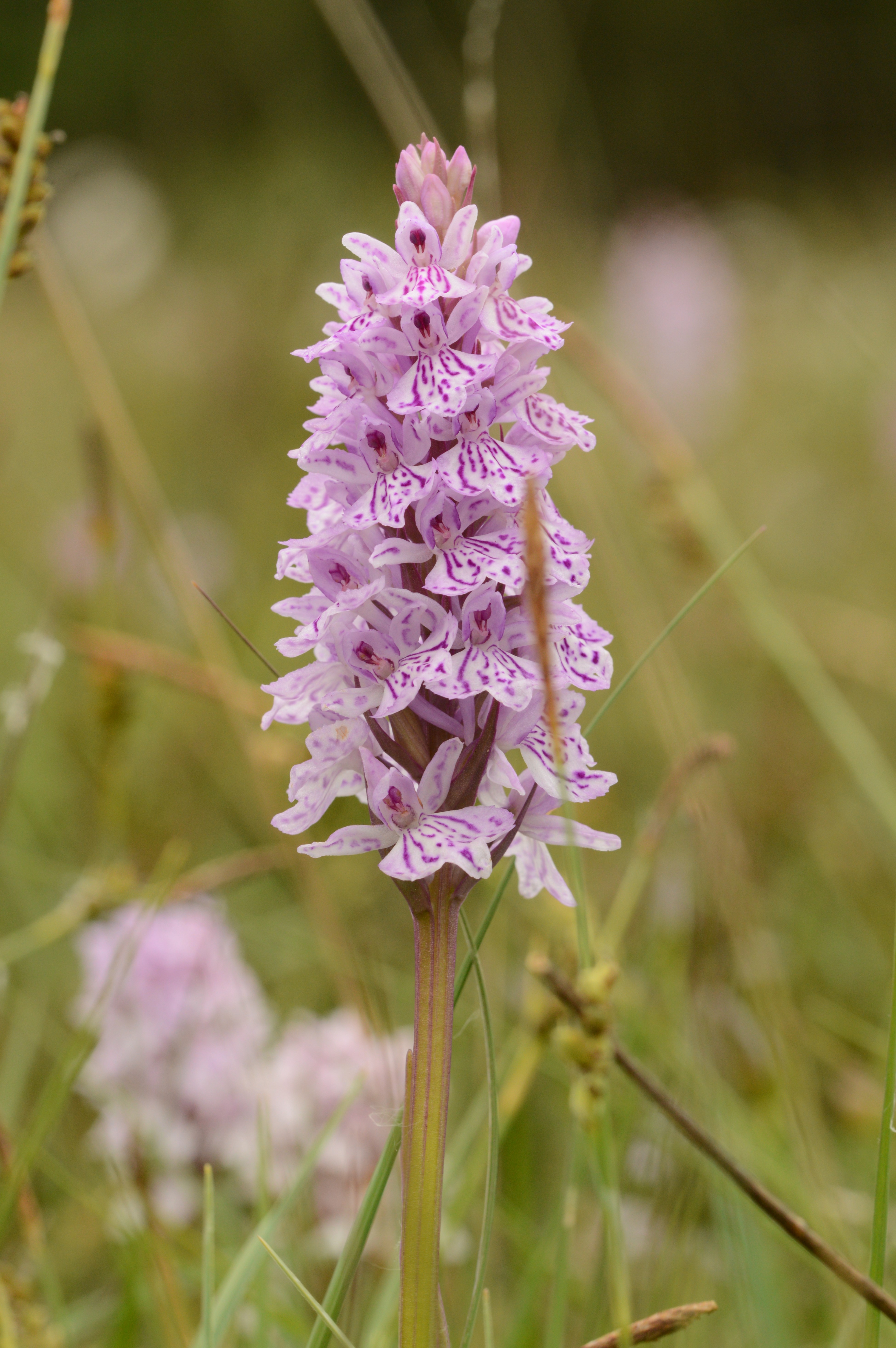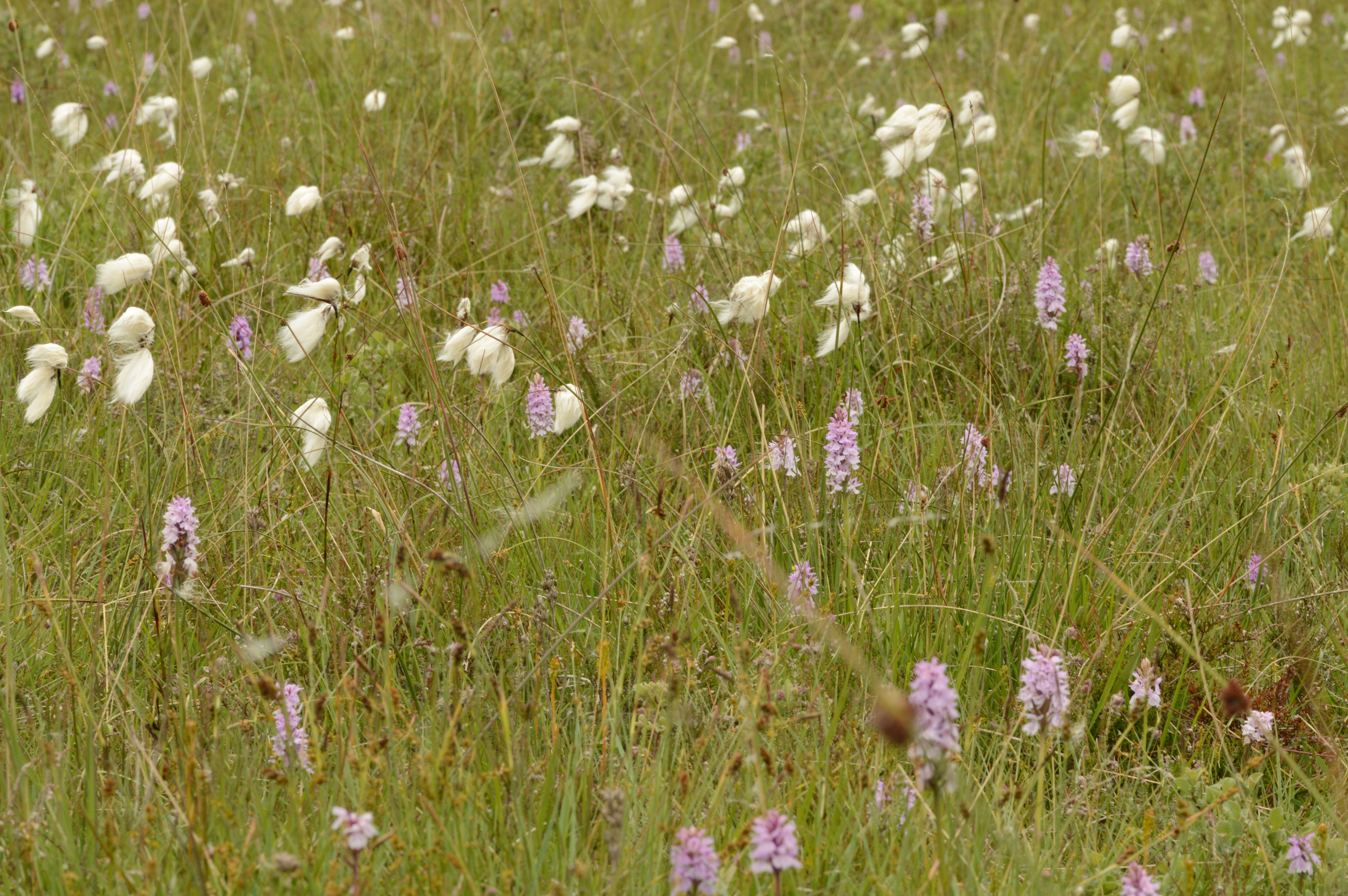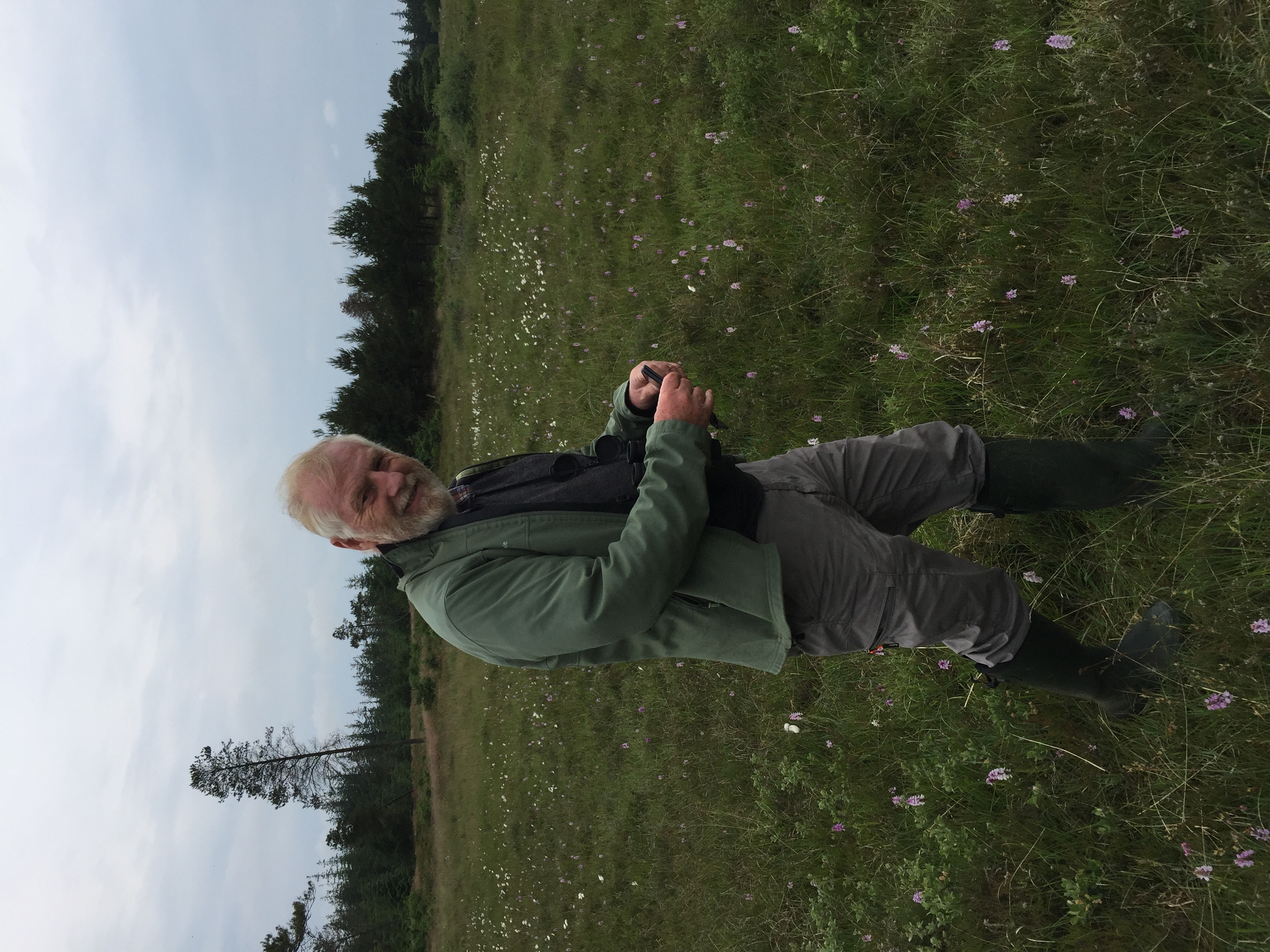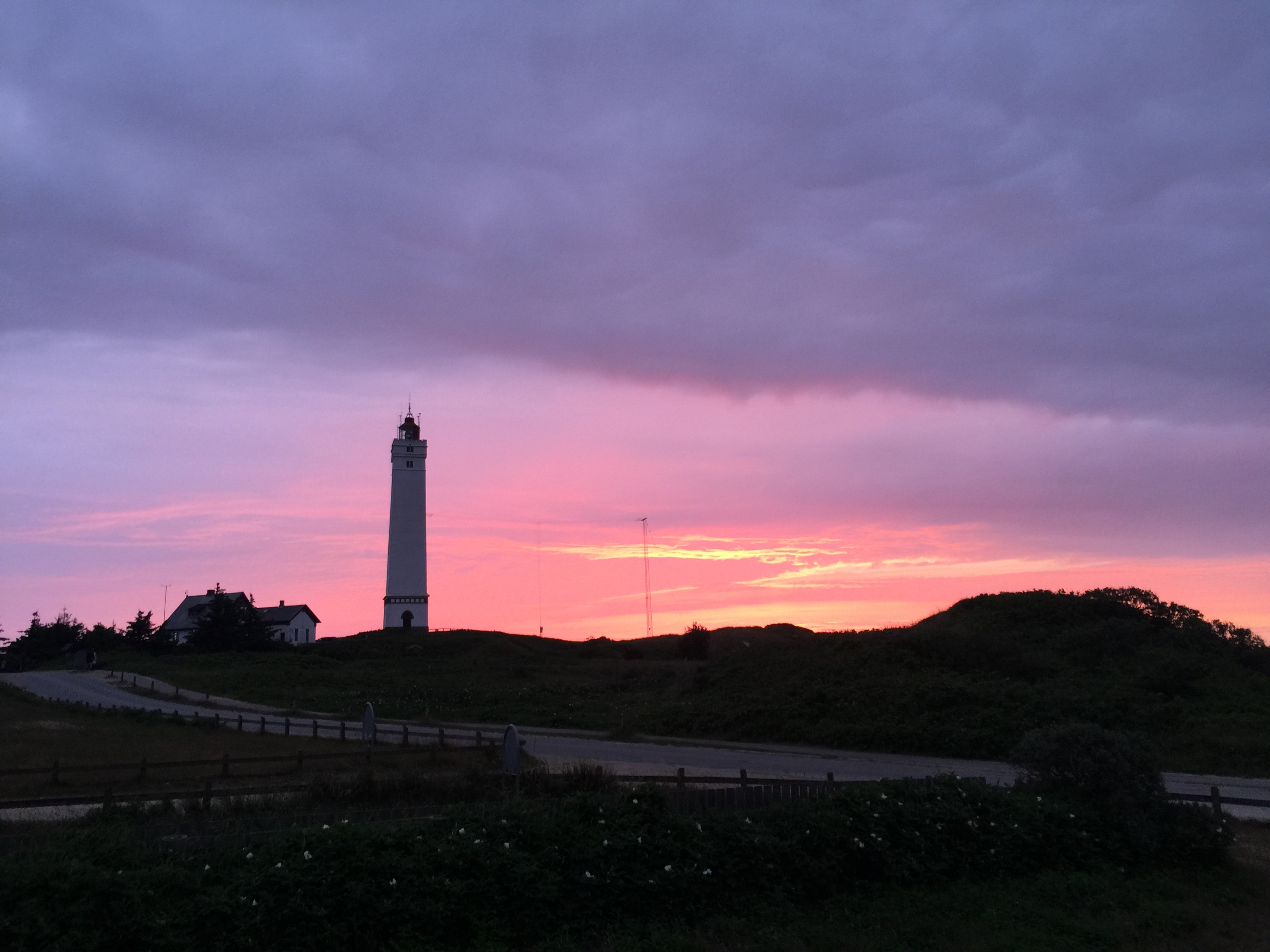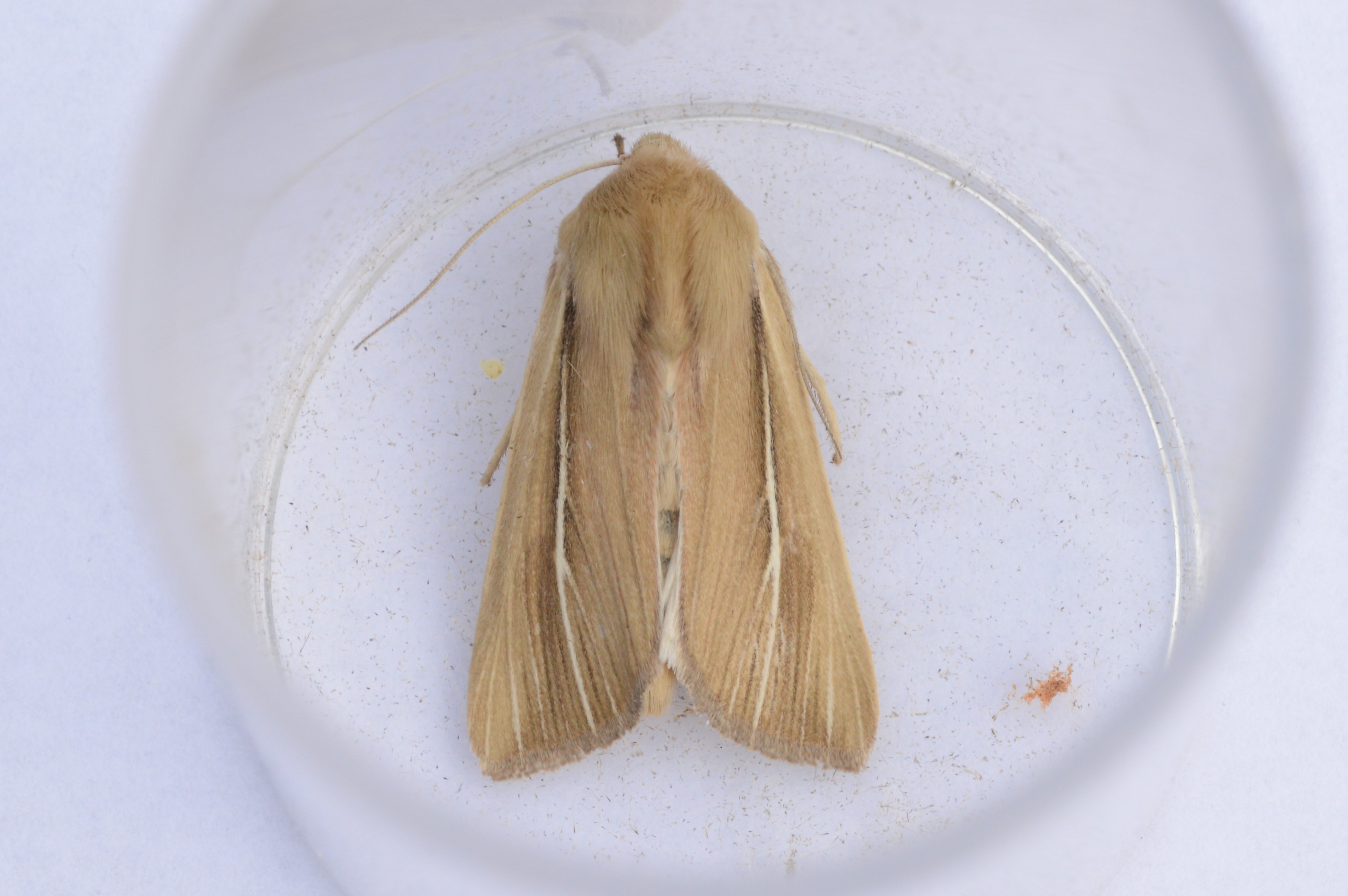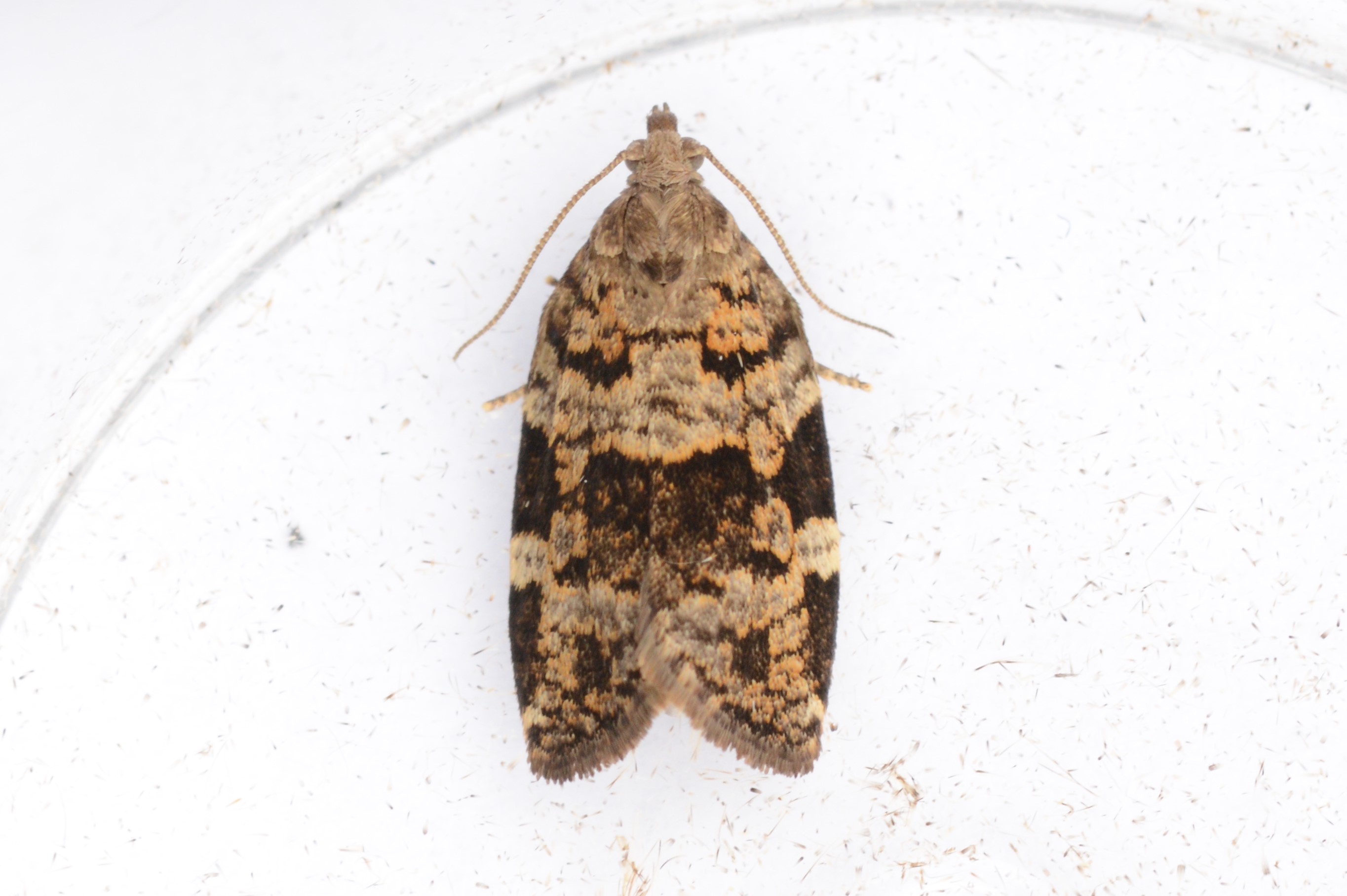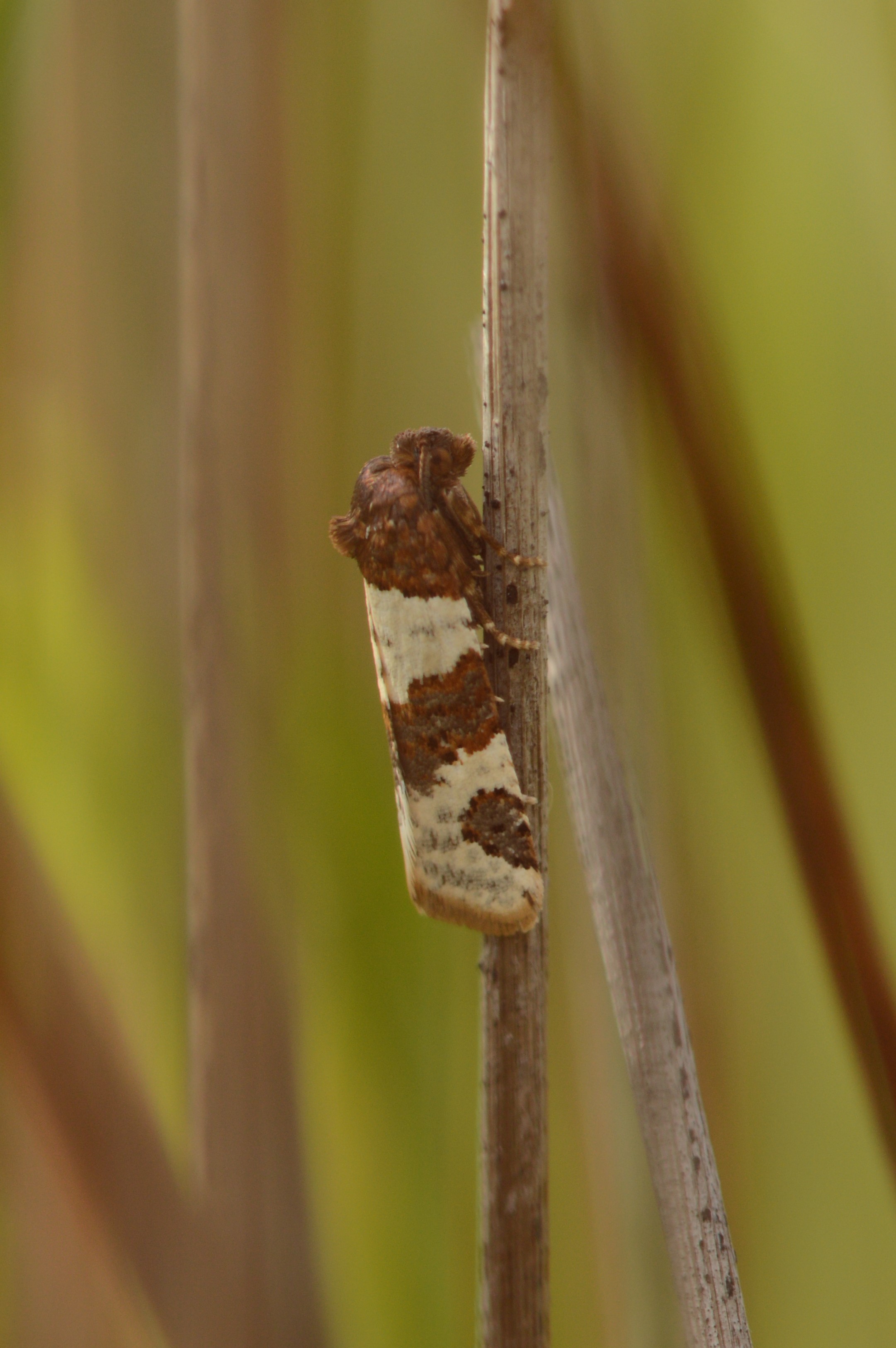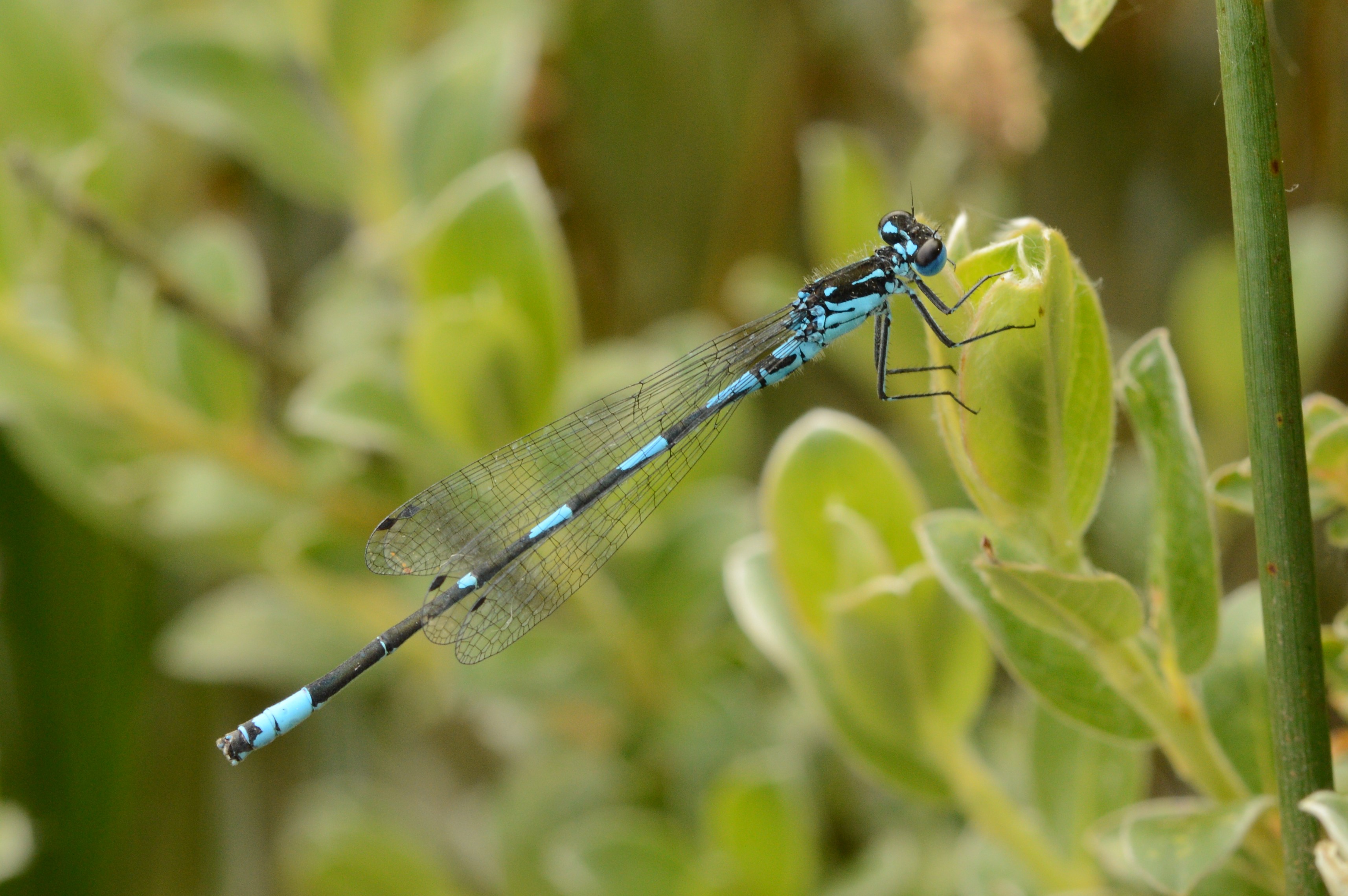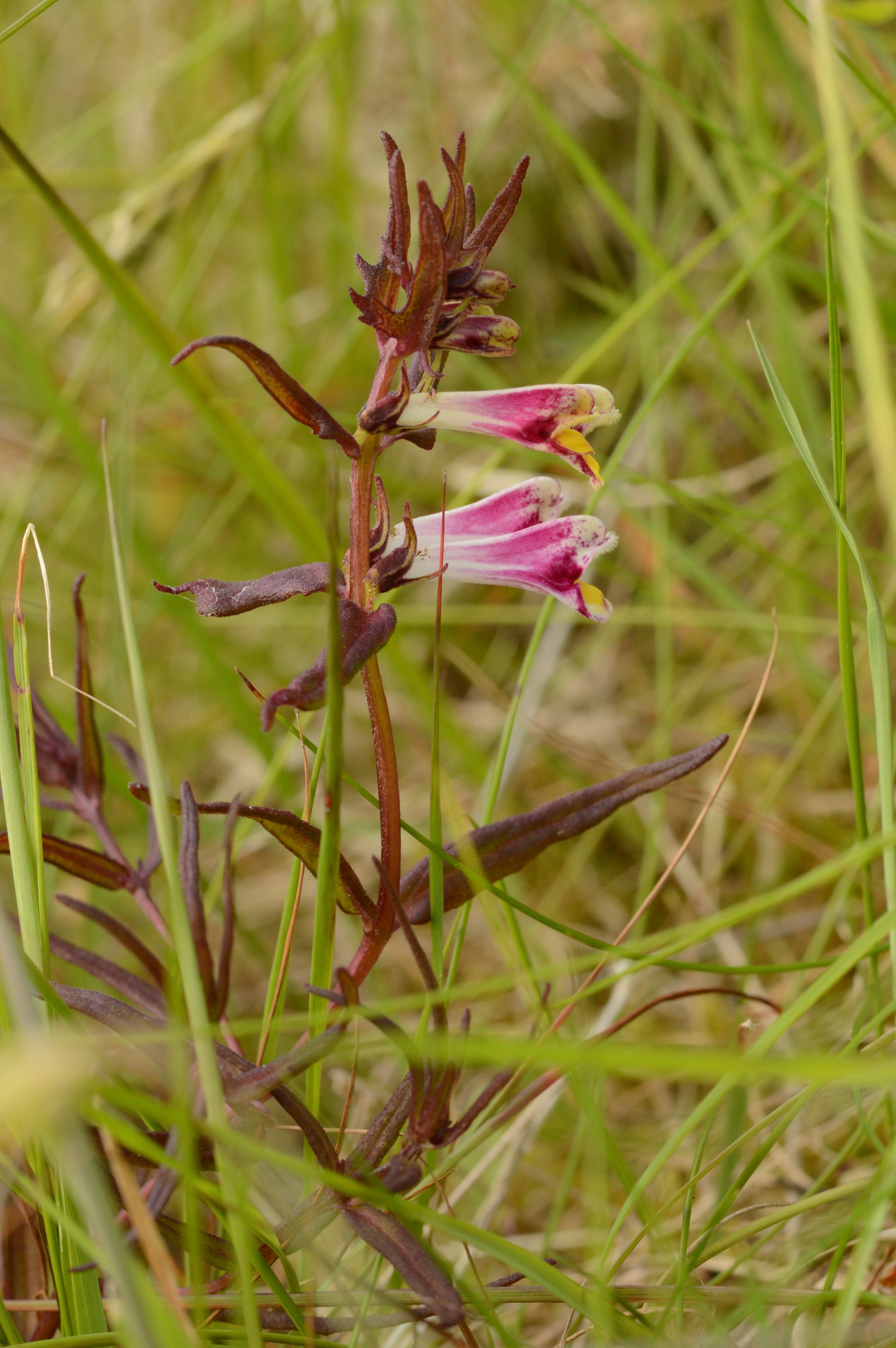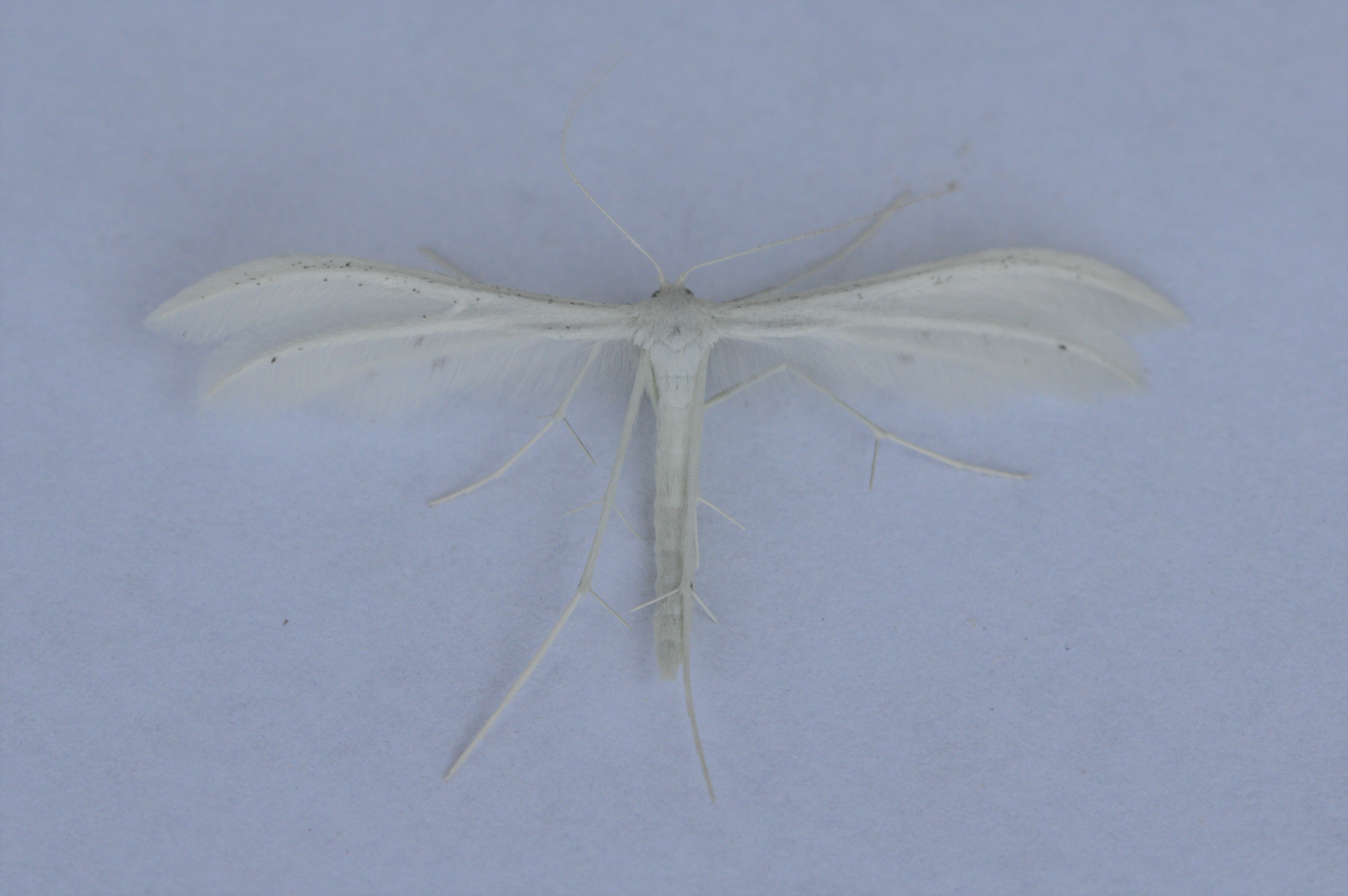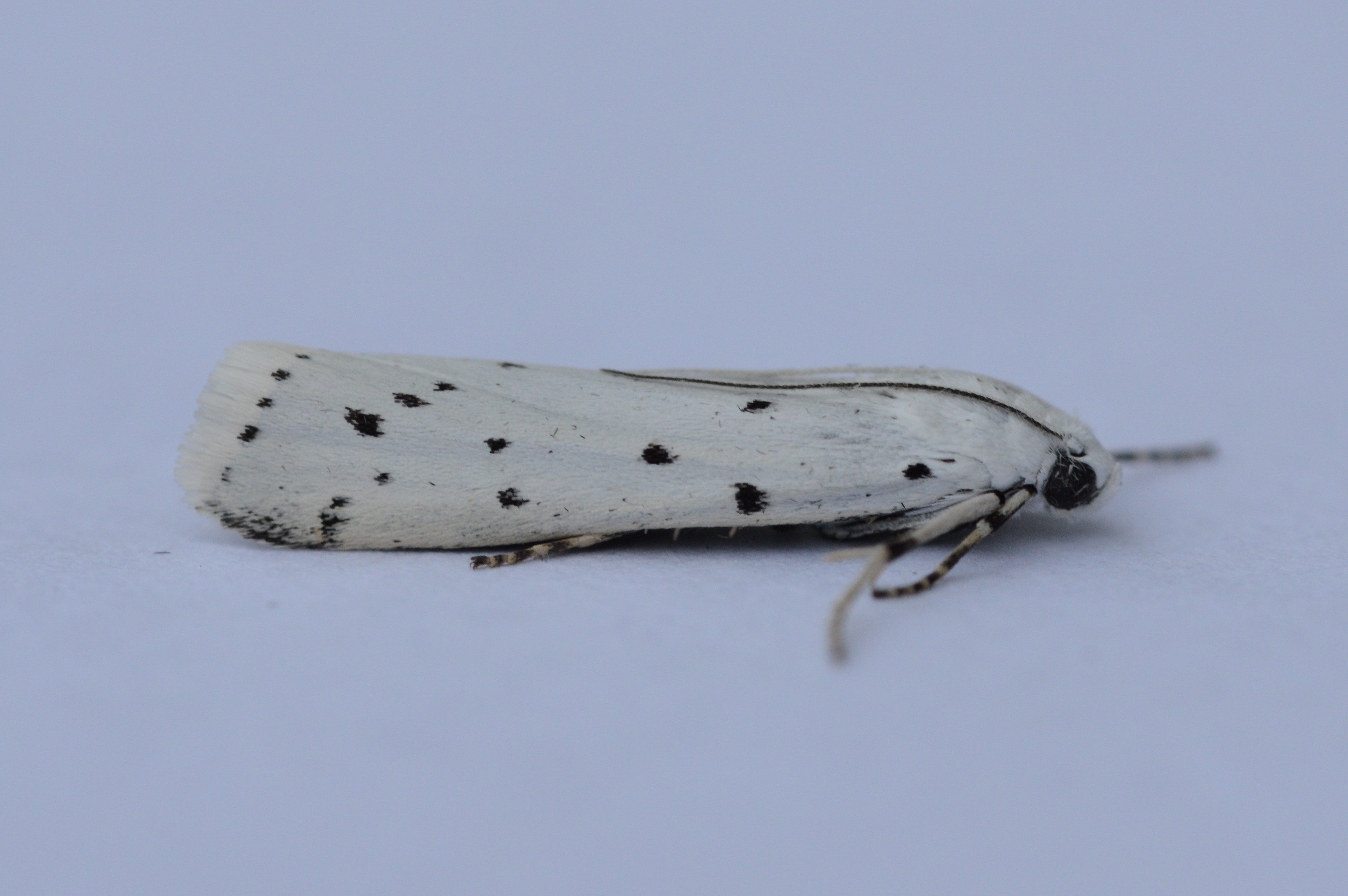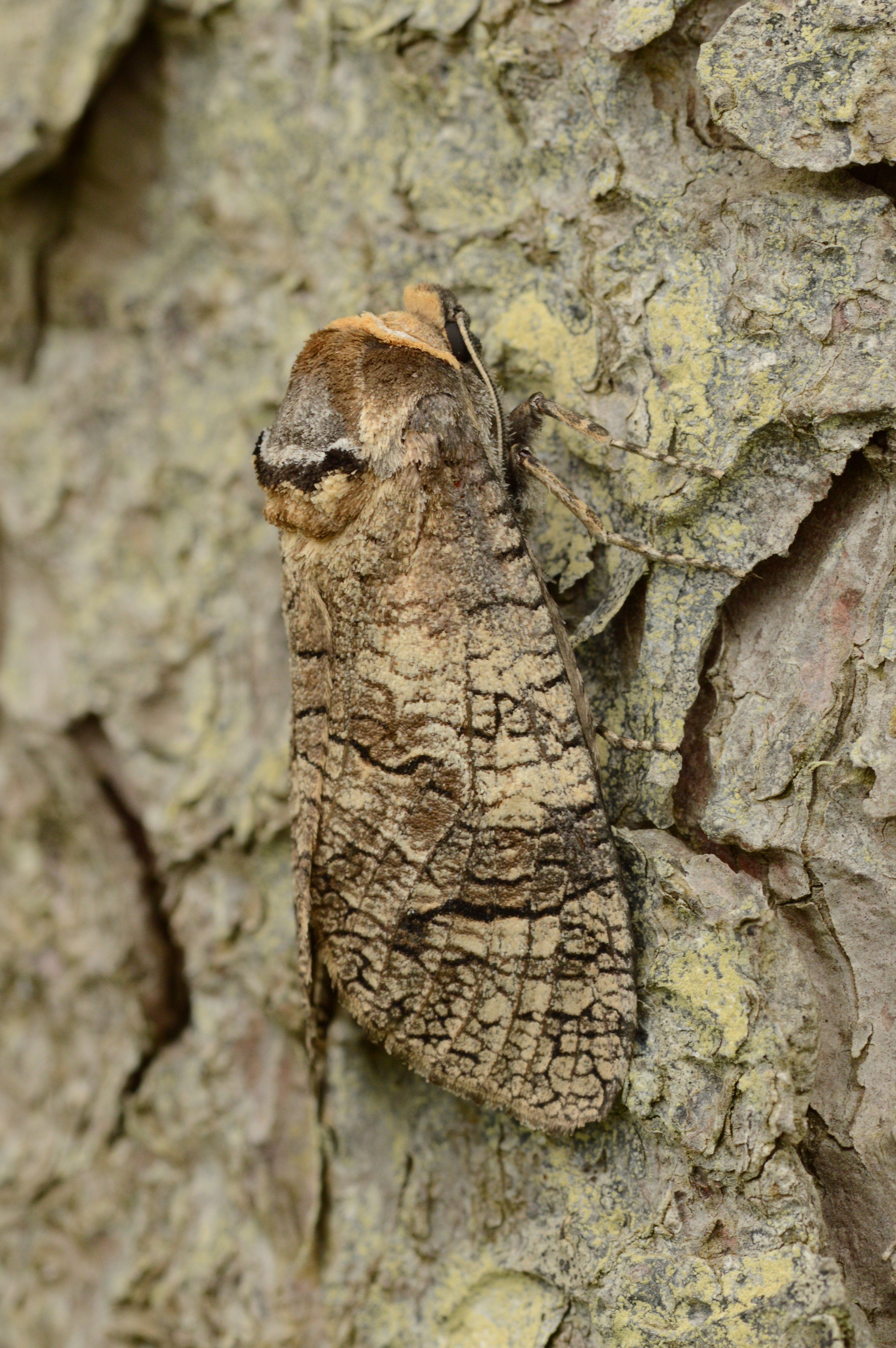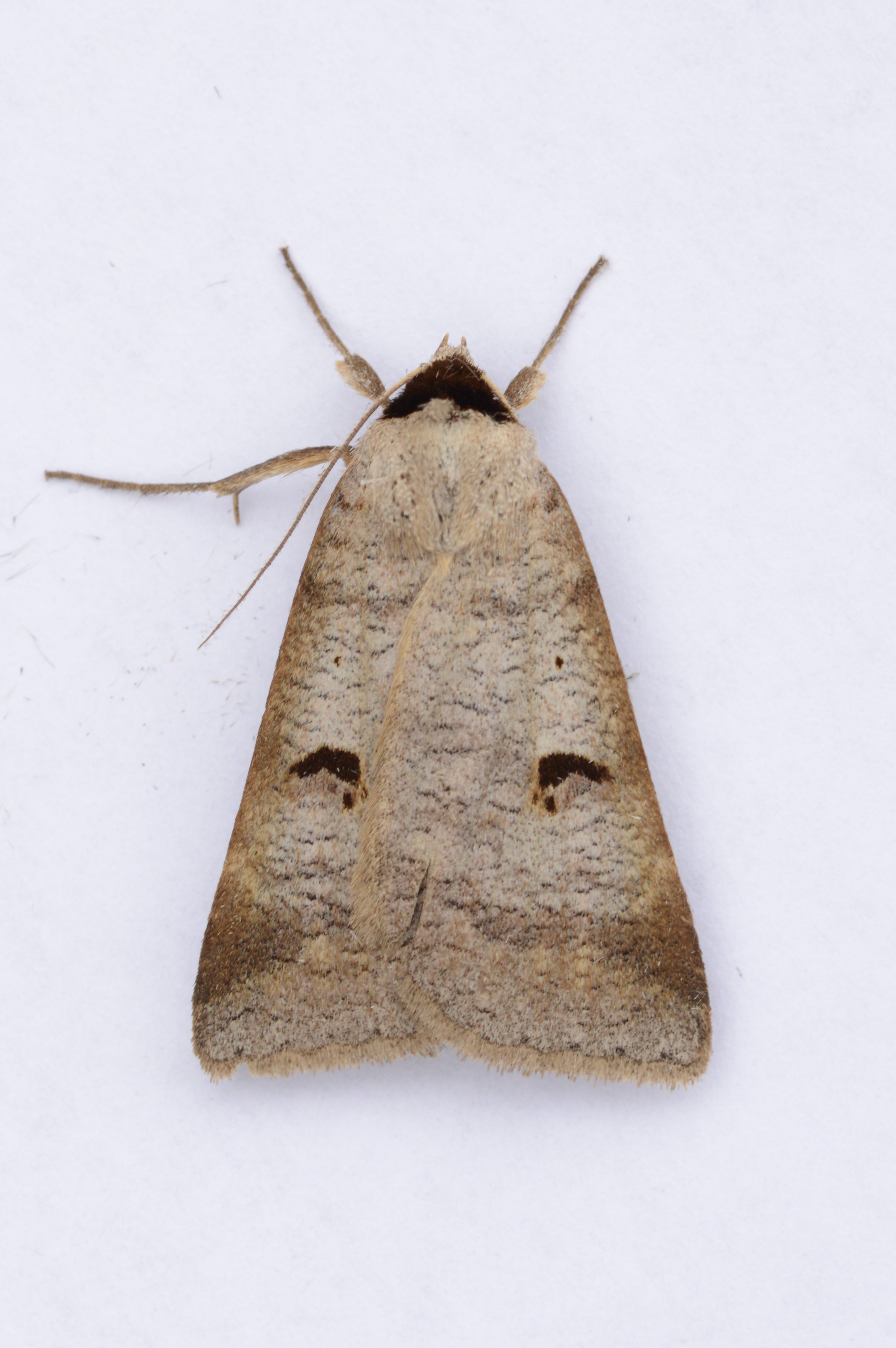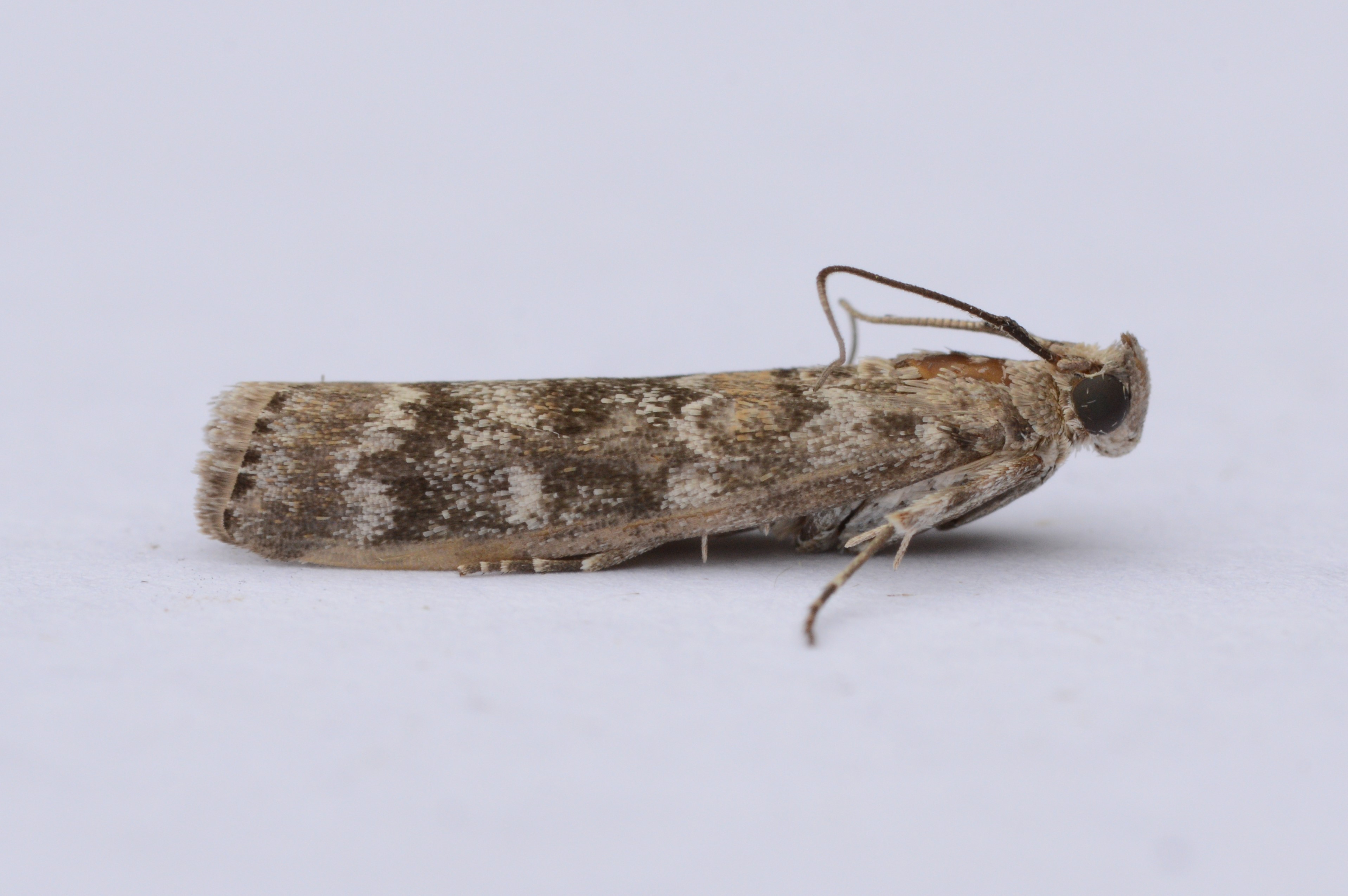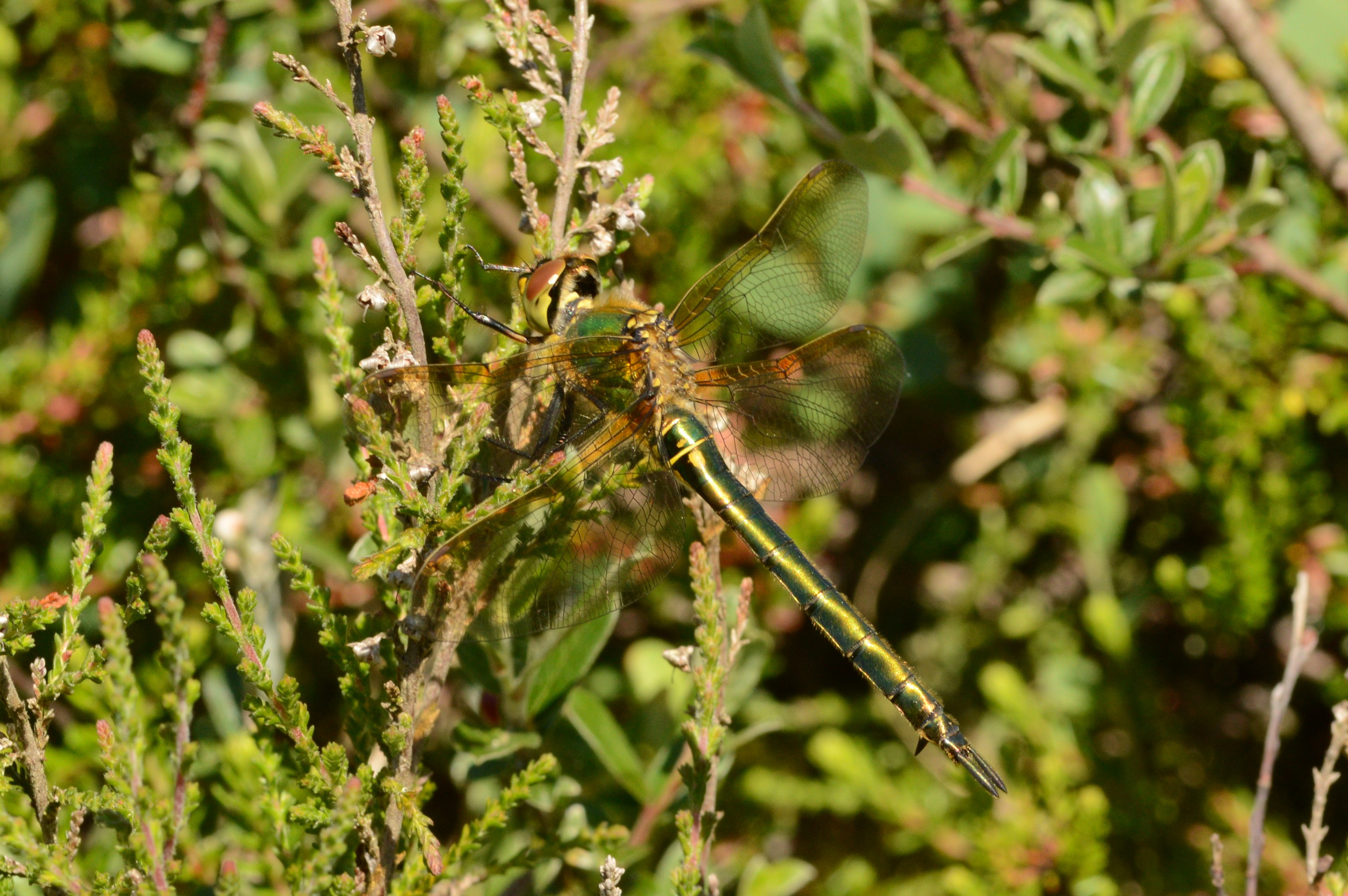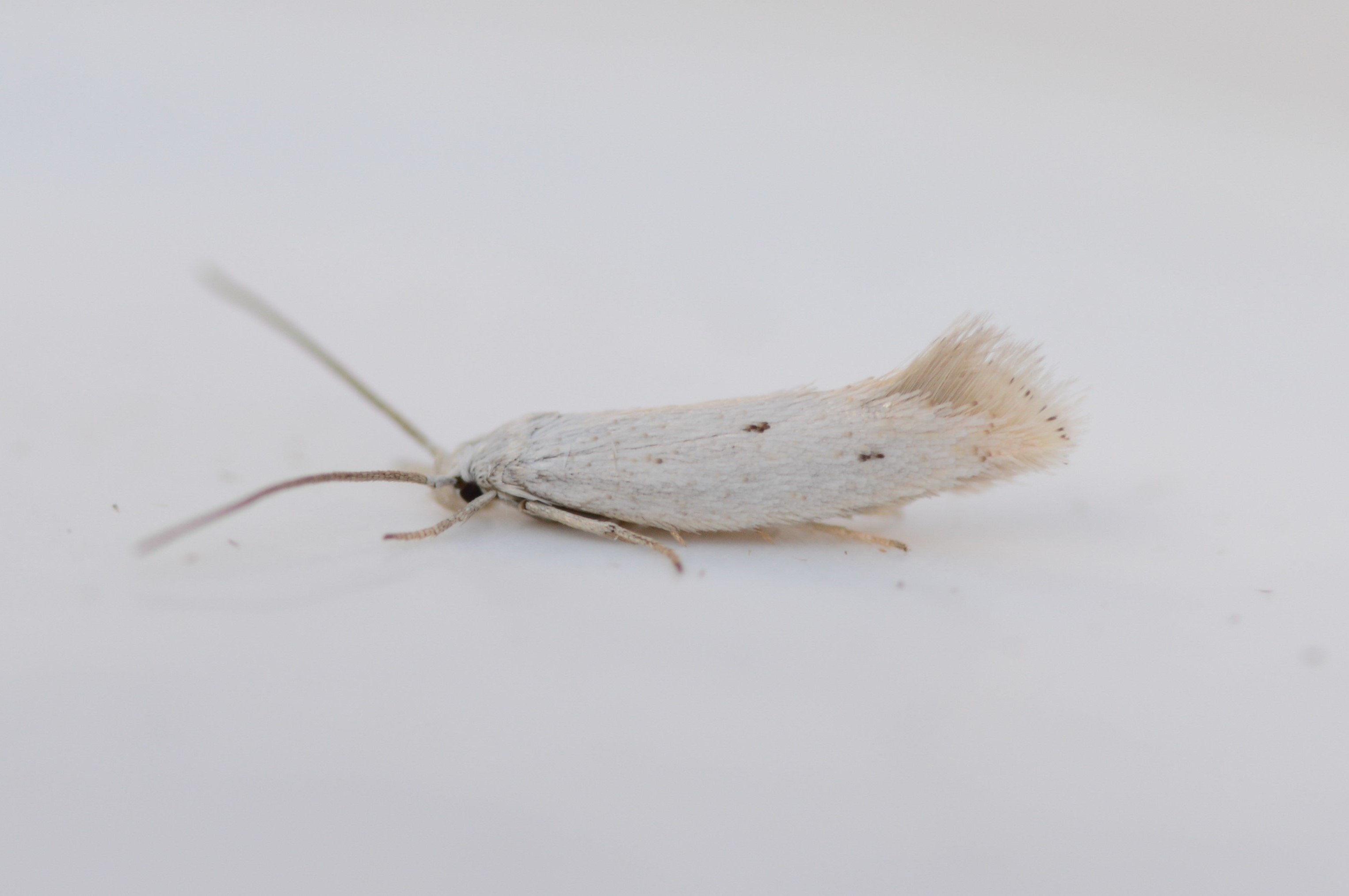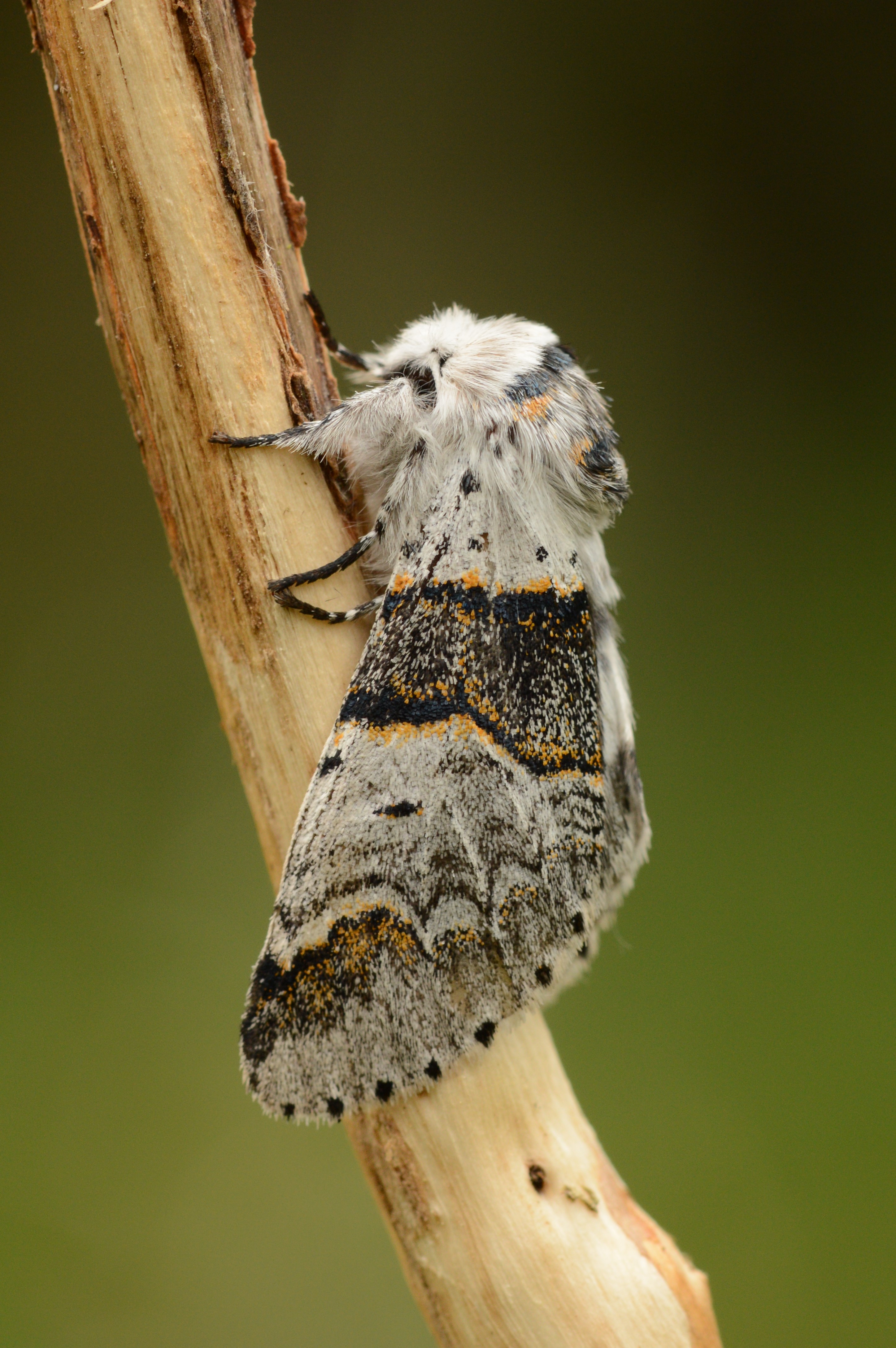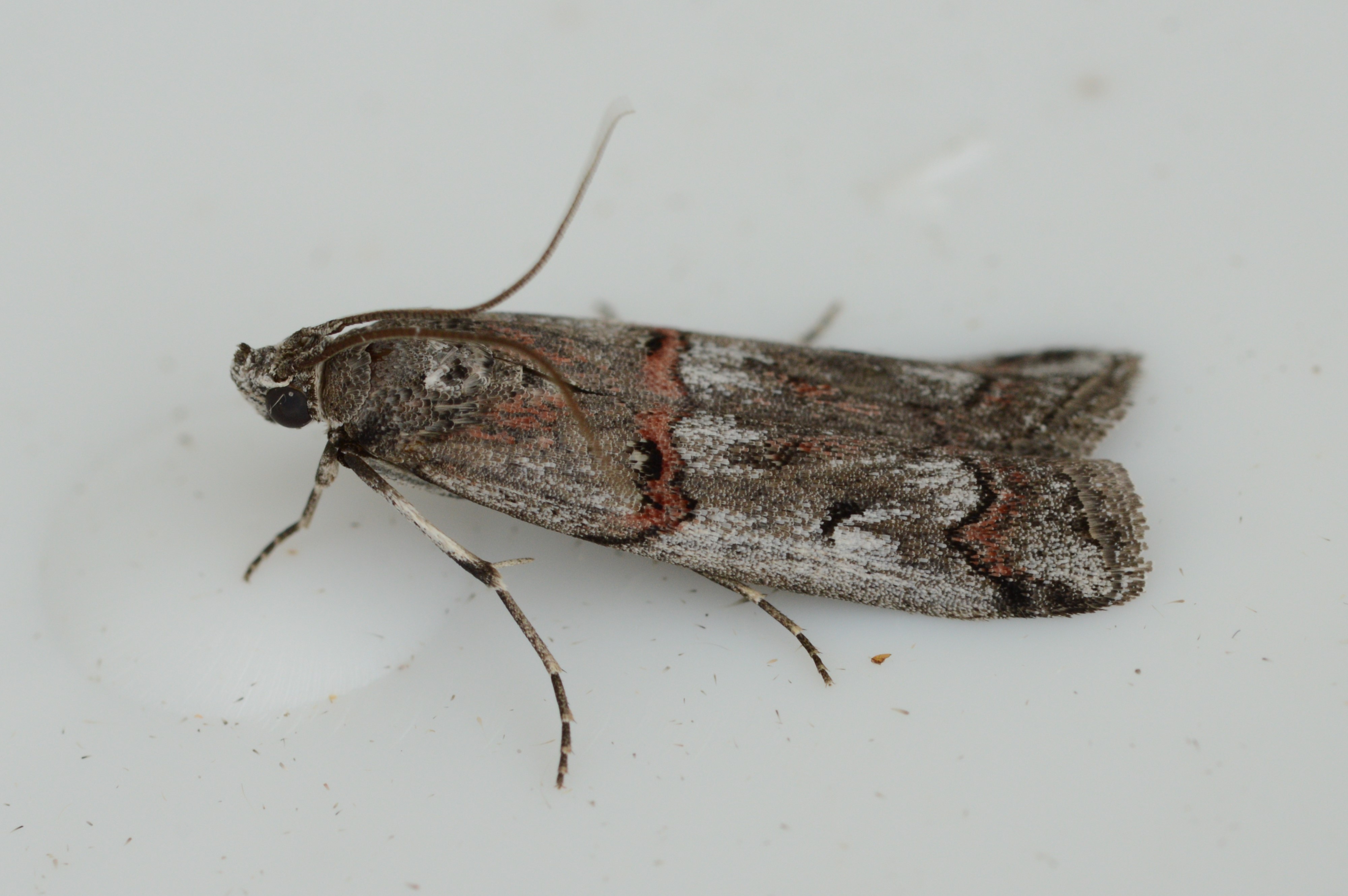Her på Blåvand's blog bringes korte nyheder i dagbogsformat om livet og hændelser på fuglestationen.
Se indlæg fra måned: jan. (10)feb. (13)mar. (24)apr. (29)maj (31)juni (30)juli (30)aug. (31)sept. (30)okt. (31)nov. (16)dec. (1)
Moths and field trip
The moth trap produced 108 moths of 48 species including the first Sand Dart (Kyst-Landmand, Agrotis ripae), Clay (Rusten Græsugle, Mythimna ferrago), Acleris bergmanniana, Anania hortulata, and Scoparia pyralella of the year.
Sand Dart (Kyst-Landmand, Agrotis ripae)
As well as the year ticks, I am catching quite a few colourful species, although I tend to pay them less attention and focus on the trickier ones to identify. As a result, I took a brief moment to take some quick pictures of some of the more familiar (if not more colourful) moths for our readers to enjoy.
Puss Moth (Hermelinskåbe, Cerura vinula)
Pine Hawkmoth (Fyrresværmer, Sphinx pinastri)
Clouded Buff (Rødfrynset bjørn, Diacrisia sannio)
Once Bent arrived, we headed out together for a visit to Filsø and Vrøgum Kær for a mix of birds, invertebrates, and flowers. Bird highlights on our trip included singing Cuckoos (Gøg, Cuculus canorus), White-tailed Eagle (Havørn, Haliaeetus albicilla), Red-necked Grebe (Gråstrubet lappedykker, Podiceps grisegena), singing Bluethroat (Blåhals, Luscinia svecica), and last but not least a suprise 2nd calendar year male Montagu's Harrier (Hedehøg, Circus pygargus) hunting over Kallesmærsk Hede! Follow the link below for a shaky video of the harrier.
https://www.youtube.com/watch?v=eY0Yozlf2EA
Further highlights included our main targets of the day, Early Marsh-orchid (Kødfarvet Gøgeurt, Dactylorhiza incarnata) and Heath Spotted-orchid (Plettet Gøgeurt, Dactylorhiza maculata)!
Heath Spotted-orchid (Plettet Gøgeurt, Dactylorhiza maculata)
Bent amongst the Heath Spotted-orchids (Plettet Gøgeurt, Dactylorhiza maculata)
To finish the day a stunning sunset as a backdrop to the lighthouse at Blåvand.
People: Bent and Samuel
Ringing, seawatch, and moths
The moth trap produced 76 moths of 37 species this morning. Year ticks included Bordered Pug (Bynke-Dværgmåler, Eupithecia succenturiata), Poplar Grey (Poppelugle, Acronicta megacephala), Brussels Lace (Lille Lavmåler,Cleorodes lichenaria), Scoparia ancipitella, and Anerastia lotella. In addition to catching lots of moths the trap does occasionally lure in something else of interest, on this occasion a Bishop's Mitre (Almindelig Bispetæge, Aelia acuminata)!

Poplar Grey (Poppelugle, Acronicta megacephala)
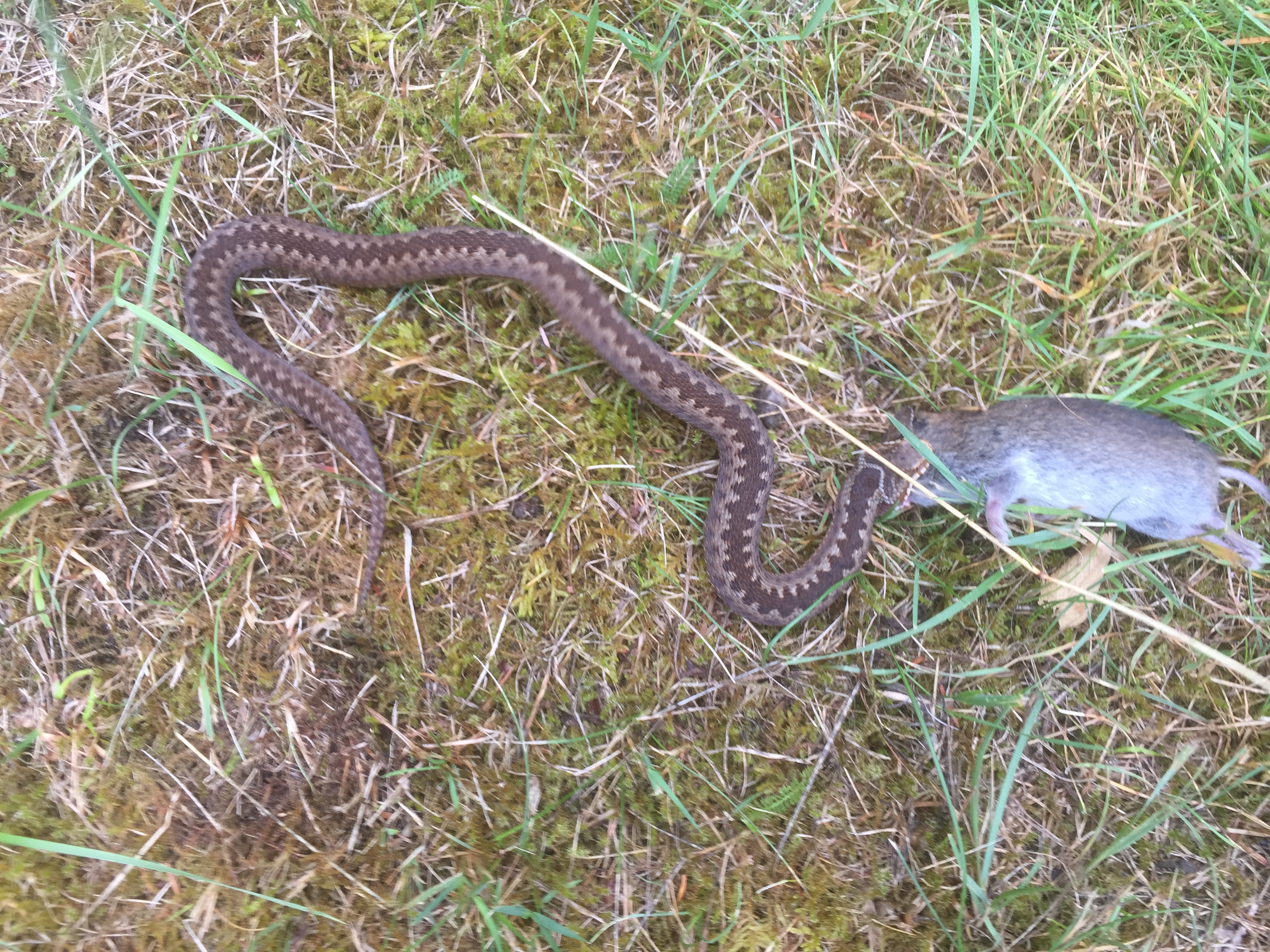
Brussels Lace (Lille Lavmåler,Cleorodes lichenaria)
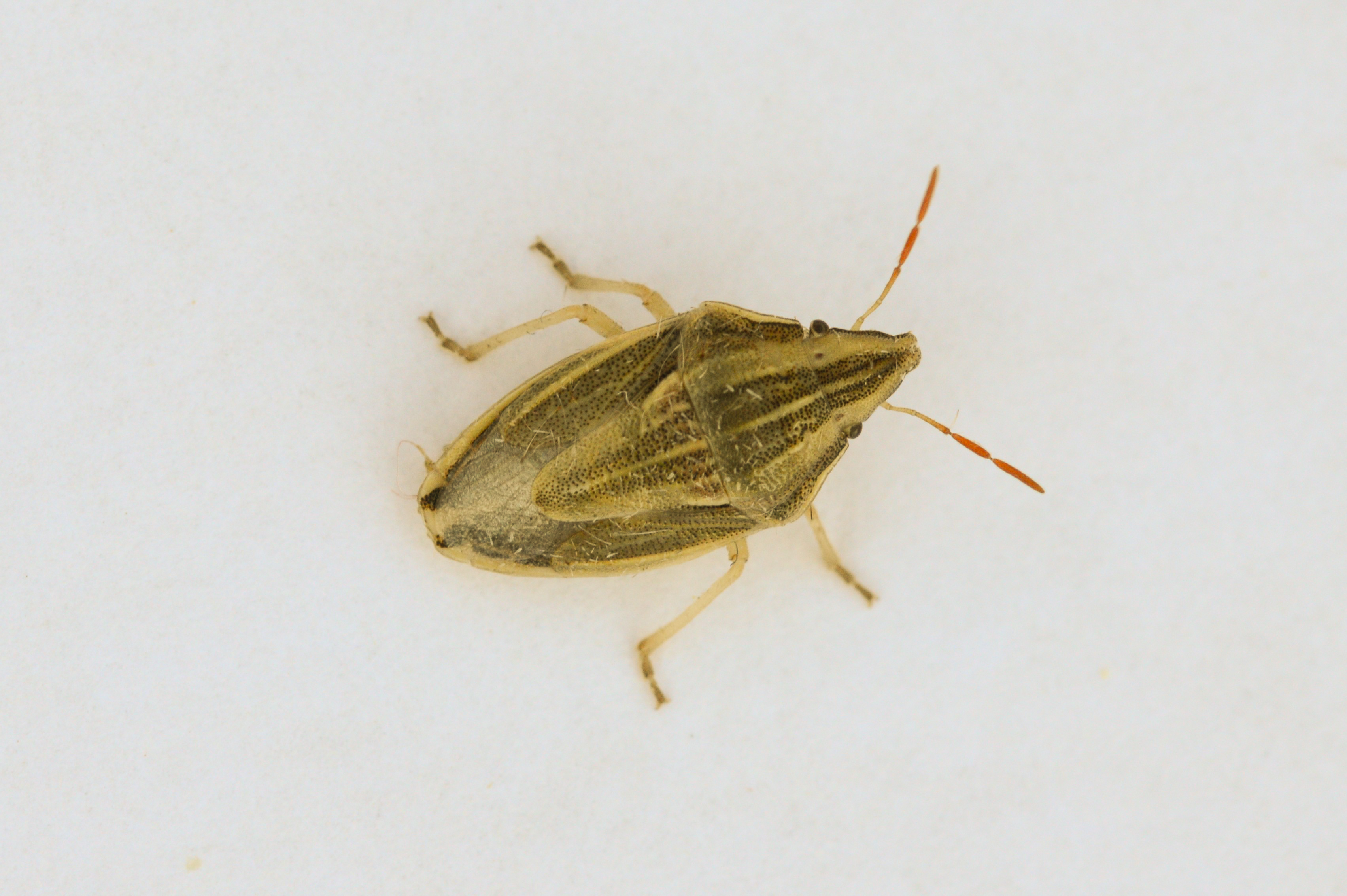
Bishop's Mitre (Almindelig Bispetæge, Aelia acuminata)!
Bent arrived around mid-morning with a tree for the heligoland trap. He has been working hard to try and fill the trap with some lush green growth in order to attract the birds. It is prooving to be a difficult task as the soil quality is rather poor. Perseverance will hopefully pay off.
The nets were also open for a total of twelve hours. In all, only two birds were ringed (although there were at least several more retraps to keep things interesting).
Ringing:
- Wren (Gærdesmutte, Troglodytes troglodytes)
- Dunnock (Jernspurv, Prunella modularis)
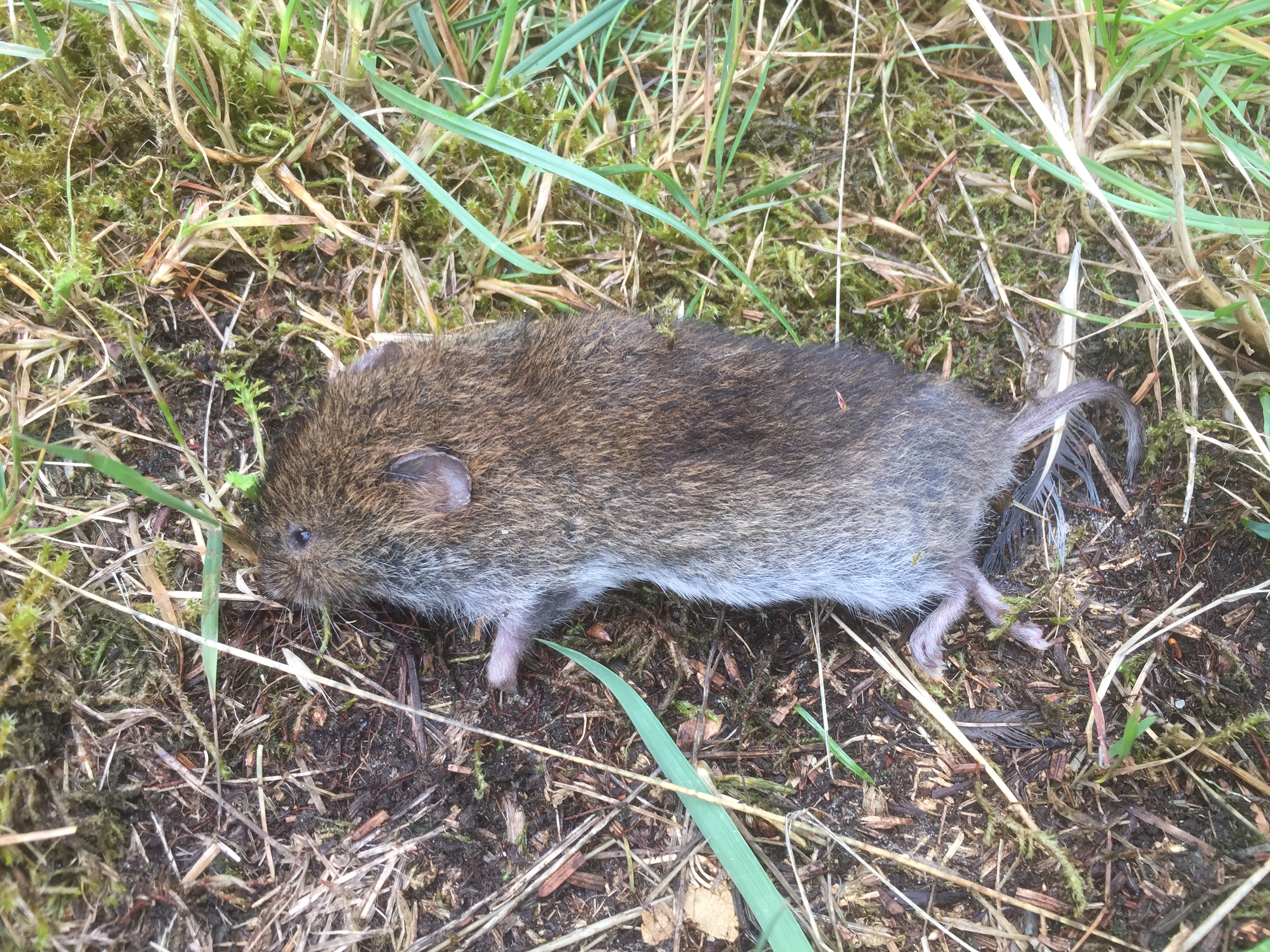
retrap Icterine Warbler (Gulbug, Hippolais icterina)
Some observations were also conducted from Sydhukket although they were only brief ad hoc visits so the total passage throughout the course of the morning would have been significantly greater than is implied by the totals in the link below.
The rest of the day was dedicated to identifying some plants and invertebrates photographed yesterday and giving both fridges a thorough clean.
People: Bent and Samuel.
Invertebrates
The moth trap produced 103 moths of 36 species. Highlights included the first Shore Wainscot (Marehalmugle, Mythimna litoralis) and Choristoneura diversana of the year.
Shore Wainscot (Marehalmugle, Mythimna litoralis)
Choristoneura diversana
Later, a long amble around the military area yielded yet another moth highlight, Periclepsis cinctana! Other noteworthy sightings included Variable Damselfly (Flagermus-Vandnymfe, Coenagrion pulchellum) and Common Cow-wheat (Almindelig kohvede, Melampyrum pratense). The bird highlights for the day included several singing Cuckoos (Gøg, Cuculus canorus) and a male Red-backed Shrike (Rødrygget Tornskade, Lanius collurio) in the lighthouse garden.
Periclepsis cinctana
Variable Damselfly (Flagermus-Vandnymfe, Coenagrion pulchellum)
Common Cow-wheat (Almindelig kohvede, Melampyrum pratense)
People: Samuel.
Moths and gardening
A calmer day than yesterday began as usual with moths. Highlights included the first Common Marbled Carpet (Jordbær-Bladmåler, Dysstroma truncata), Myelois circumvoluta, and Pterophorus pentadactyla of the year.
I hope the recent moth focus on the blog is still keeping regular readers interested, to be honest there are few passerine migrants about at the moment so the focus does change during the course of the season. However, the seawatching has been surprisingly productive given the time of year so for anyone under the impression there isn't much to see avian-wise at this time of year I would highly recommend a seawatch! As proof have a read of this morning's observations.
Pterophorus pentadactyla
Myelois circumvoluta
The rest of the morning was dedicated to replacing two nets in the lighthouse garden and doing some much needed gardening (trimming back the net rides to stop the branches snagging on the nets).
People: Bent and Samuel.
Multitasking
A rather busy day with beginning as usual with a check of the moth trap. The station nets were also open for a total of 15 hours and a few intermitent visits to Sydhukket to check on the sea passage were made. All produced some nice surprises!
The stand out highlight from the moth trap was a very fresh female Goat Moth (Pileborer, Cossus cossus), so named because the larva have a distinct goat-like smell (although I can't say I have personnally experienced this). A few migrants were also noted amongst the 45 moths of 29 species trapped. These included Ostrinia nubilalis, Silver Y (Gammaugle,Autographa gamma), and Straw Dot (Lille Å-Ugle, Rivula sericealis). Other less common species (as well as year ticks) included Blackneck (Vikkeugle, Lygephila pastinum) and Dioryctria schuetzeella.
Female Goat Moth (Pileborer, Cossus cossus)
Blackneck (Vikkeugle, Lygephila pastinum)
Dioryctria schuetzeella
There was a steady trickle of birds through the garden, most of whom where using the pond due to the lack of nearby freshwater. This led to 22 birds of 13 species being ringed. Ten recaptures were also made, including a stunning 3rd calendar year plus male Stonechat (Sortstrubet Bynkefugl, Saxicola rubicola)!

3rd calendar year plus male Stonechat (Sortstrubet Bynkefugl, Saxicola rubicola)
other highlights from the ringing...

Juvenile Stonechat (Sortstrubet Bynkefugl, Saxicola rubicola)

Juvenile Crested Tit (Topmejse, Lophophanes cristatus)

Adult male White Wagtail (Hvid Vipstjert, Motacilla alba)
Ringing:
- 2 Nordlig/Lille Gråsisken (Common/Lesser Redpoll, Acanthis flammea/cabaret)
- 1 Tornirisk (Linnet, Linaria cannabina)
- 1 Rødhals (Robin, Erithacus rubecula)
- 1 Topmejse (Crested Tit, Lophophanes cristatus)
- 2 Gærdesangere (Lesser Whitethroat, Curruca curruca)
- 1 Jernspurv (Dunnock, Prunella modularis)
- 1 Sortstrubet Bynkefugl (Stonechat, Saxicola rubicola)
- 2 Musvit (Great Tit, Parus major)
- 5 Skovspurv (Tree Sparrow, Passer montanus)
- 1 Hvid Vipstjert (White Wagtail, Motacilla alba)
- 1 Grønirisk (Greenfinch, Chloris chloris)
- 2 Sangdrossel (Song Thrush, Turdus philomelos)
- 2 Stær (Starling, Sturnus vulgaris)
Last but not least a few breaks between the rounds allowed me to briefly check on passing seabirds. A remarkable (given the brevity of my visits) total of 3700 Common Scoter (Sortand, Melanitta nigra) were moving north past the point. Other noteworthy sightings included 17 Red-breasted Merganser (Toppet Skallesluger, Mergus serrator) and 6 Crossbill (Lille Korsnæb, Loxia curvirostra).
See the full list of sightings in the attachment below...
People: Bent and Samuel.
Moths, seawatch, and a field trip!
The day began with a customary check of the moth trap. Modest totals yielded 41 moths of 26 species. The highlights included Silver Y (Gammaugle, Autographa gamma), Clouded Buff (Rødfrynset Bjørn, Diacrisia sannio), and a Peppered Moth (Birkemåler, Biston betularia) of the dark form known as carbonaria. This is a famous text book example of adaptation in accordance to the environmental surroundings. During the 1980's when industrial polution led to more smog which coated buildings and trees the dark form was considerably more abundant representing 60-80% of the overal population (at least where I am more familiar with it in the UK). Nowadays, the dark form is considerably more scarce given better air quality and the light form persists to a much greater degree due to its better camouflage on paler surfaces.
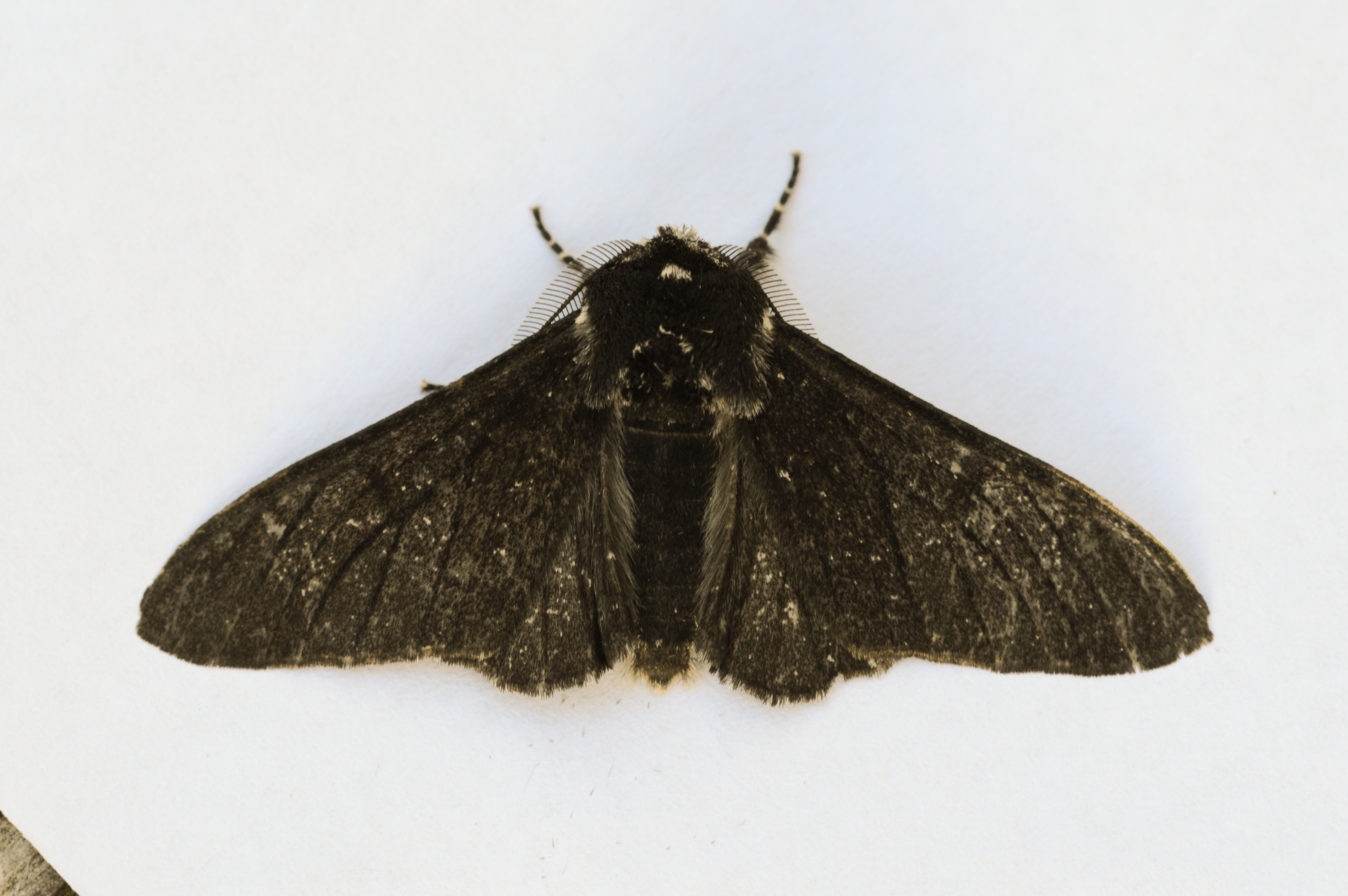
Peppered Moth (Birkemåler, Biston betularia) of the dark form carbonaria
Up next was a brief seawatch to while away the time before Bent arrived at the observatory. I ended up spending over an hour at the bunker as the passage bird numbers were rather good given the time of year. The highlights were 2 adult dark phase Arctic Skuas (Almindelig Kjove, Stercorarius parasiticus), presumably they now represent autumn migrants in which case they are the first of the season! Additional noteworthy counts included 1690 Common Scoter (Sortand, Melanitta nigra), a 2nd calendar year Mediterranean Gull (Sorthovedet Måge, Ichthyaetus melanocephalus), and one Magpie (Husskade, Pica pica) within a group of three arriving in the lighthouse garden before taking flight, rising high up and continue directly out to sea in a westerly direction. Once it was barely a visible dot disappearing into the horizon it turned back and flew directly back inland. Even this seemed to be a rather substancial feat for a Magpie given they detest crossing large bodies of water, let alone a sea!
See the link below for a full summary of this morning's sightings in the Blåvands Huk locality.
Once Bent arrived at the observatory around mid-morning, we headed out for a tour around the localish area taking in sites such as Ho Bugt, Vrøgum Klitplantage, Kløvbakken, and Lyngbos Hede. Our target species included Alcon Blue (Ensianblåfugl, Phengaris alcon) and Niobe Fritillary (Klitperlemorsommerfugl, Argynnis niobe). Unfortunately, there was no sign of either but we were well rewarded with both a large number and diversity of dragonflies! I have yet to go through all of my pictures from the day so here is a Brilliant Emerald (Glinsende smaragdlibel, Somatochlora metallica) as a taster whilst I prepare the other photos for publishing at a later date.
Brilliant Emerald (Glinsende smaragdlibel, Somatochlora metallica)
People: Bent and Samuel.
Moths and gulls
I'm falling into a rather repetative pattern in recent days with the morning beginning by checking the moth trap followed by a walk down to the beach for gulls and attempting a seawatch if the conditions look promising and modest number of birds are passing. Compared with yesterday's catch in the moth trap numbers had greatly improved, thanks mostly to the easing of the wind. Highlights included three year ticks, White Satin Moth (Atlaskspinder, Leucoma salicis), Water Ermine (Snehvid tigerspinder, Spilosoma urticae), and Elachista triatomea. All of which are dominantly white as chance would have it!
Elachista triatomea
The observations were predictably quiet given the northerly wind. The military were also firing so there was no access available to the beach further north than the point itself. However, the silver lining to this meant that the area imediately north of the no go zone was undisturbed and several hundred gulls had accumulated on the beach. They were just within identifiable range and after some considerable scanning, a 2nd calendar year Mediterranean Gull (Sorthovedet Måge, Ichthyaetus melanocephalus) was found.
See the link below for a full acount of this mornings sightings.
People: Samuel.
Moth and Data
The title of the blog doesn't lie. There truly was only one moth in the trap last night! This was a dramatic reduction on recent evenings which have often produced triple figure counts. This was in a large part due to the strong northerly wind so I was forced to locate the trap in a very secluded corner of the garden with a considerably limited viewable radius for the light to shine over. The moth in question was a Shoulder-striped Wainscot (Kommaugle, Leucania comma), one of the bulk species from recent days.
Due to the continued strong wind throughout the rest of the day I opted to focus on some data entry instead and finally got round to entering and subitting all the nocturnal migration counts which I conducted over the course of the spring onto Trektellen. The highlights of which included numerous flocks of Common Scoter (Sortand, Melanitta nigra), various tringa waders, a Barn Owl (Slørugle, Tyto alba), rare in the Blåvand Huk recording area, and last but not least the third site record of Spotted Crake (Plettet Rørvagtel, Porzana porzana)!
Check out our totals on the Trektellen website (see the link below)!
https://trektellen.nl/count/view/2520/20210607
People: Samuel
Mothing and gulling
Moth trapping produced 53 moths of 30 species. One of the highlights was a very fresh Poplar Kitten (Aspegaffelhale, Furcula bifida).
Poplar Kitten (Aspegaffelhale, Furcula bifida)
Once the moth trap was checked I headed out to conduct some seawatching. The conditions were not ideal with a northerly wind discouraging any substancial offshore migration. As such, I focused on the hundreds of gulls present on the sand banks instead. After a substancial amount of scanning to and fro I eventually clocked eyes on a 2nd calendar year Little Gull (Dværgmåge, Hyrdocoloeus minitus). Other noteworthy sightings made by Bent on a separate visit still involved some high gull totals including 210 Lesser Black-backed Gulls (Sildemåge, Larus fuscus), 150 Black-headed Gulls (Hættemåge, Chroicocephalus ridibundus), 150 Common Gulls (Stormmåge, Larus canus), 700 Herring Gulls (Sølvmåge, Larus argentatus), and four Great Black-backed Gulls (Svartbag, Larus marinus).
See the link below for a full list of this morning's sightings.
Moths and rain
The cloudy conditions and warm overnight temperatures were both conducive for producing a rather busy night in the moth trap with 140+ moths trapped involving 55 species. A few migrants were noted including four Diamond-back Moths (Kålmøl, Plutella xylostella) and two Silver Y (Gammaugle, Autographa gamma). Other highlights included the first Dingy Shell (Lille Kratmåler, Euchoeca nebulata) of the year and a rather stunning example of Pempelia palumbella.
Pempelia palumbella
Once the moth trap had been checked, I headed down to the beach for a seawatch. The conditions were less than ideal with a light northerly wind discouraging any substancial offshore passage. Highlights included 3 Red-throated Divers (Rødstrubet lom, Gavia stellata) and 13 Shelduck (Gravand, Tadorna tadorna). As a result, I decided to focus on reading some colour rings on gulls. During the process I came across two smart adult breeding plumage Mediterranean Gulls (Sorthovedet måge, Ichthyaetus melanocephalus) and a Greenshank (Hvidklire, Tringa nebularia) dropped in when the heavy rain set in.
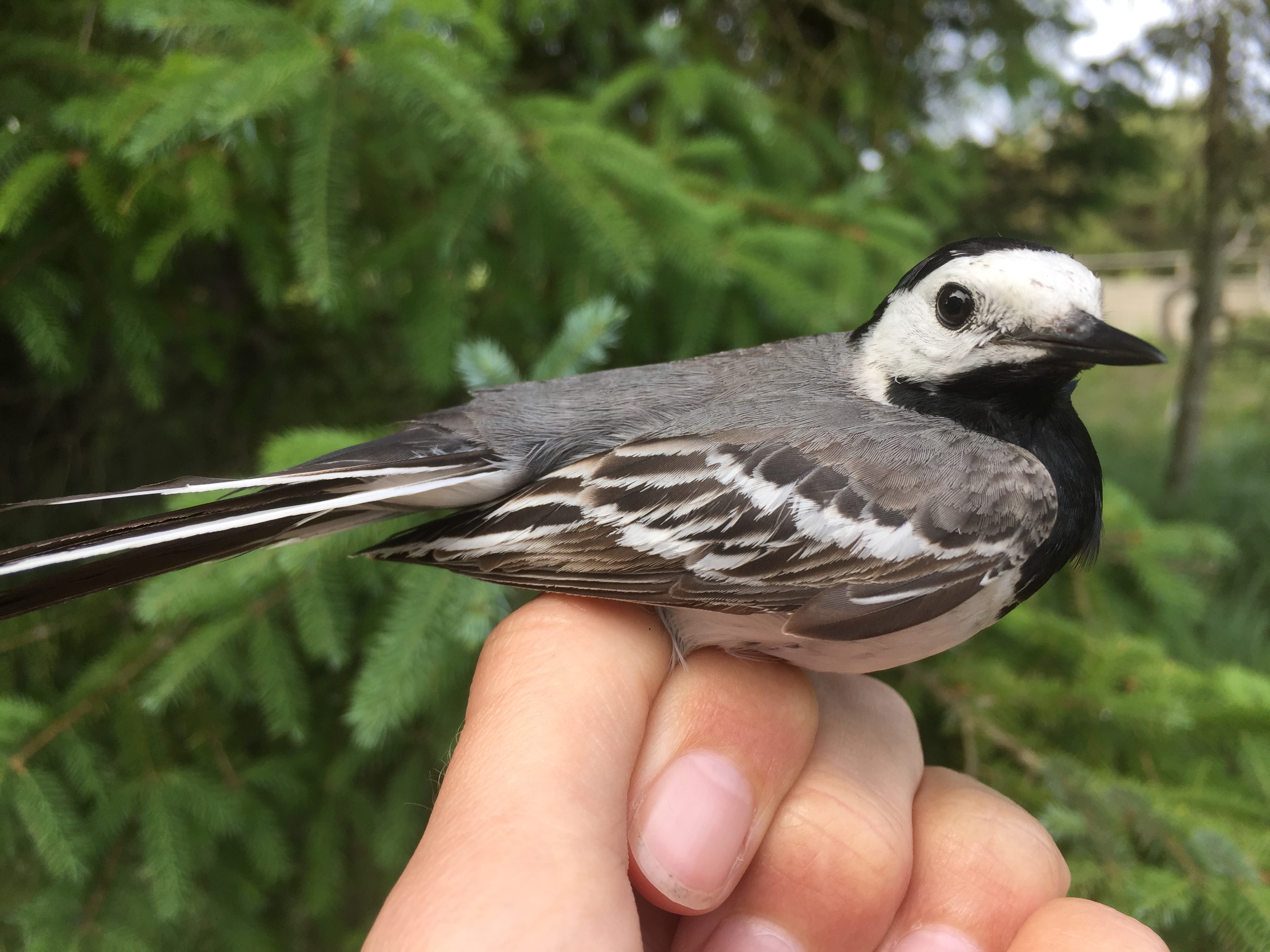
Two adult breeding plumage Mediterranean Gulls (Sorthovedet måge, Ichthyaetus melanocephalus)
People: Samuel.
